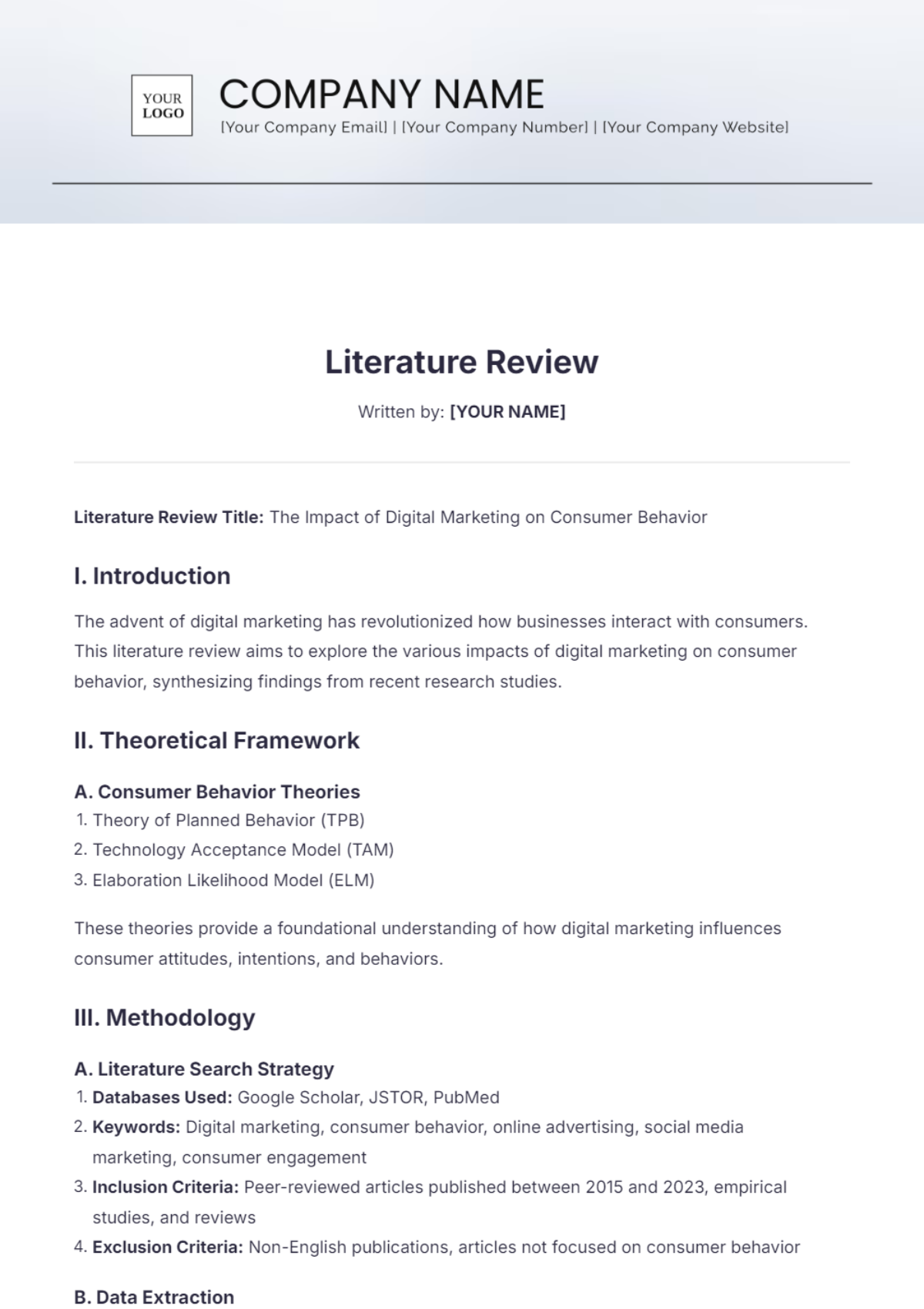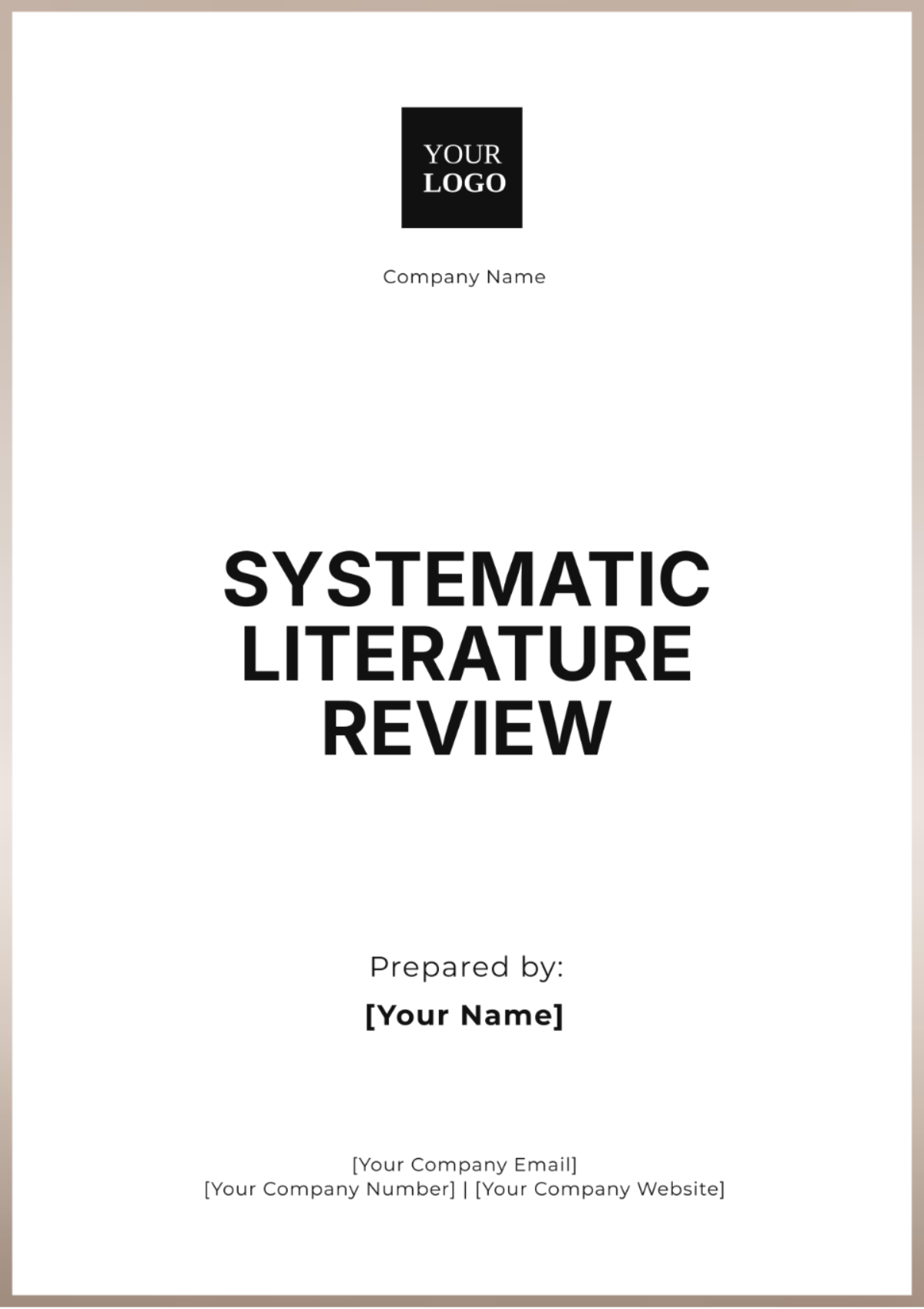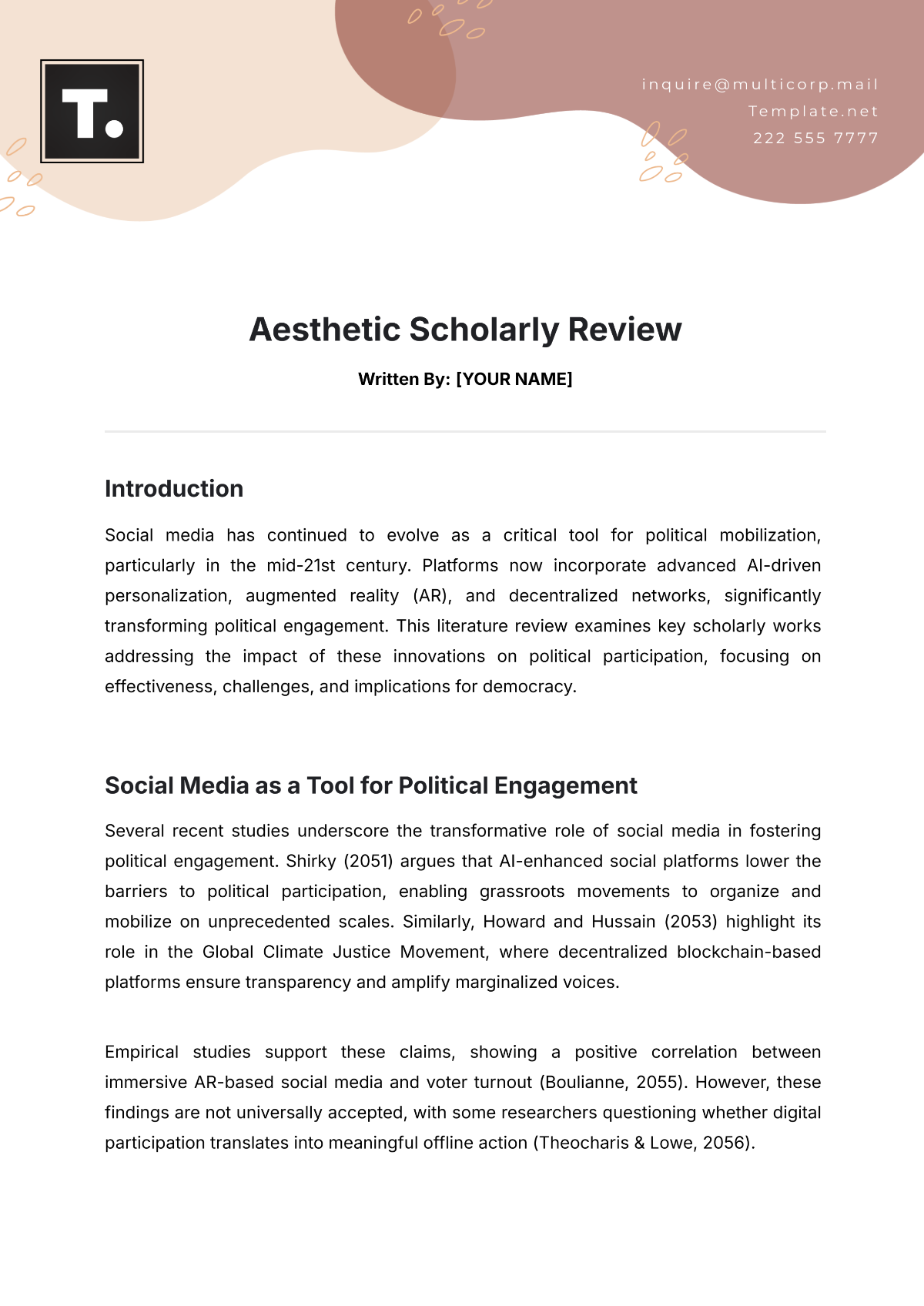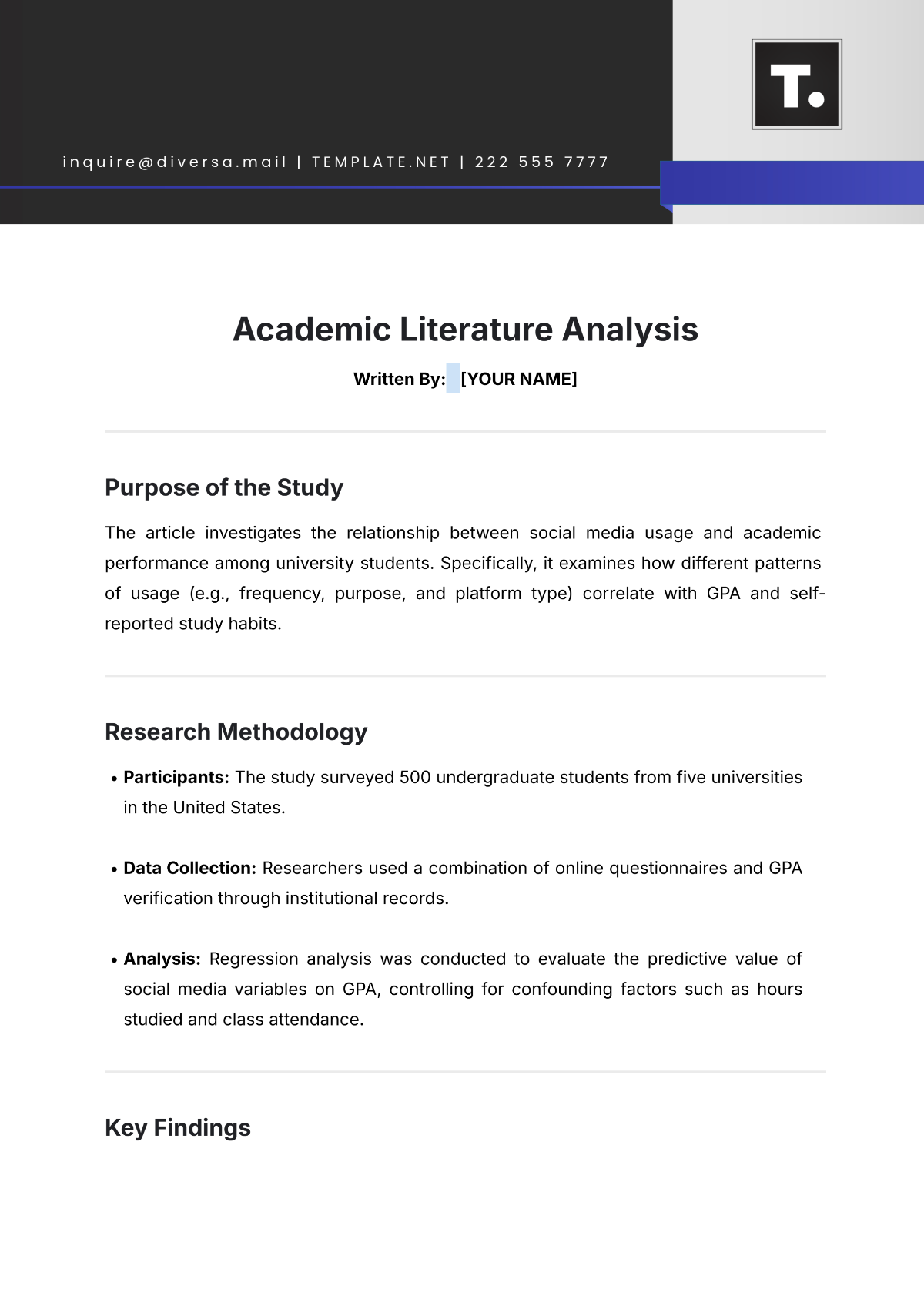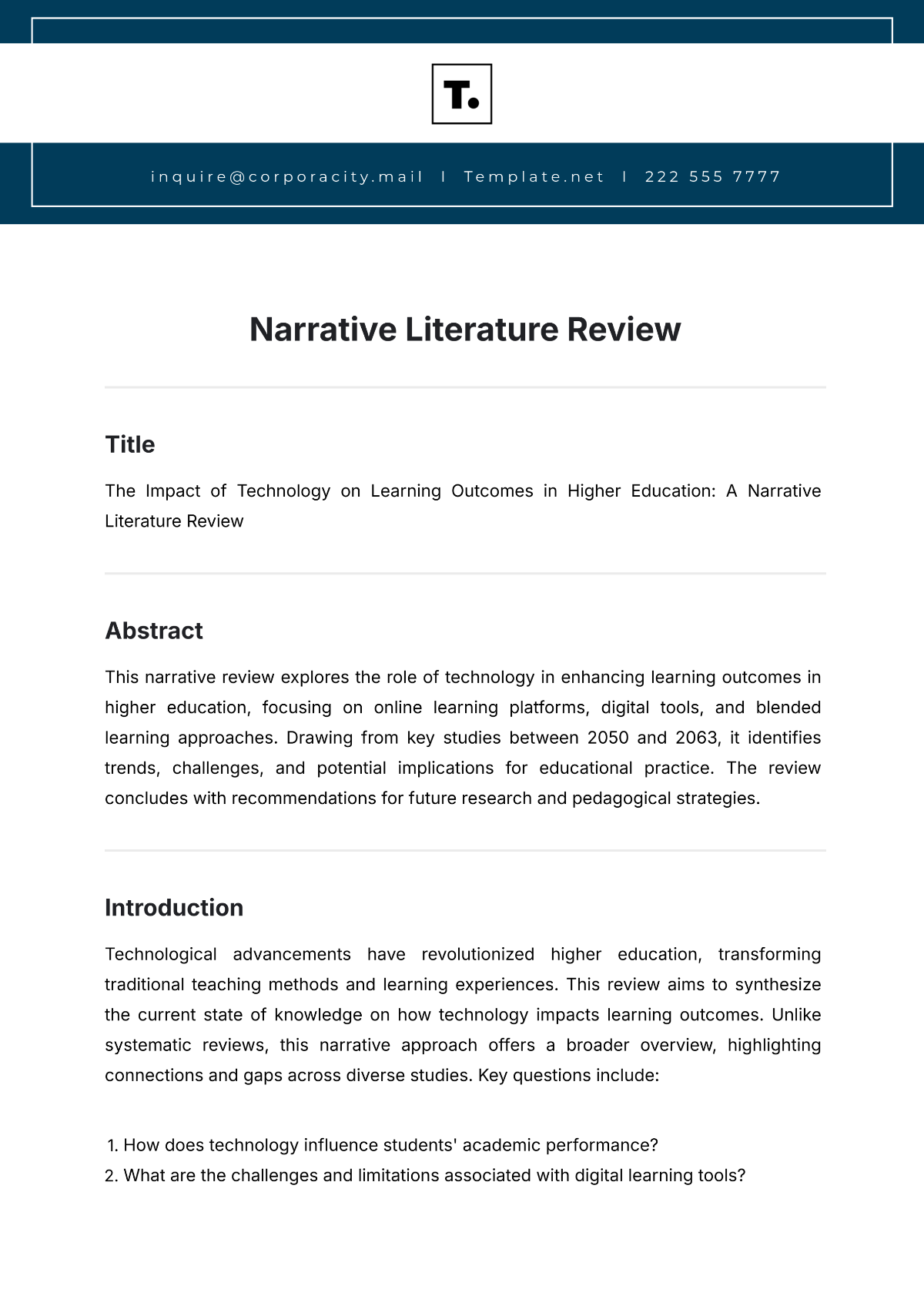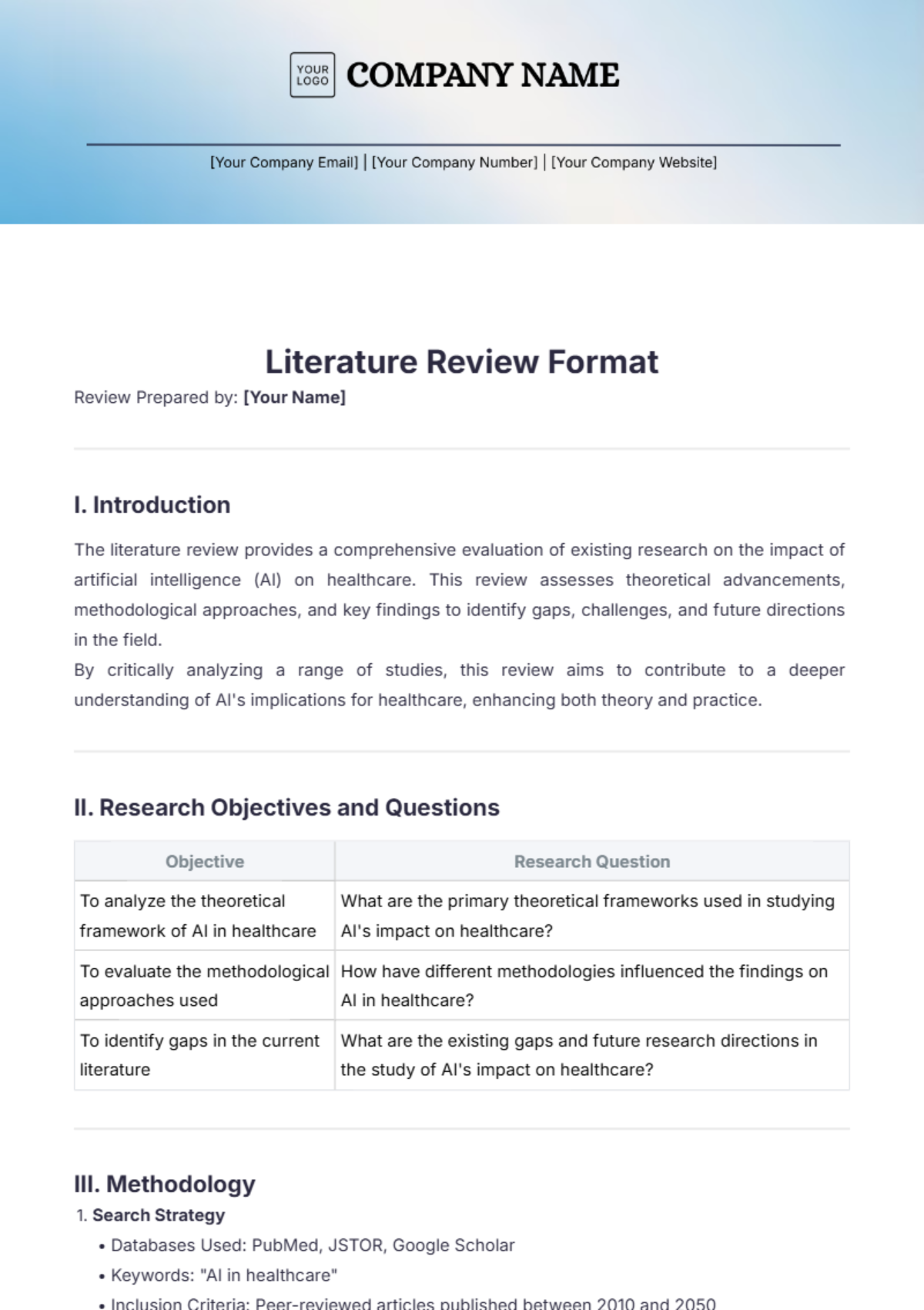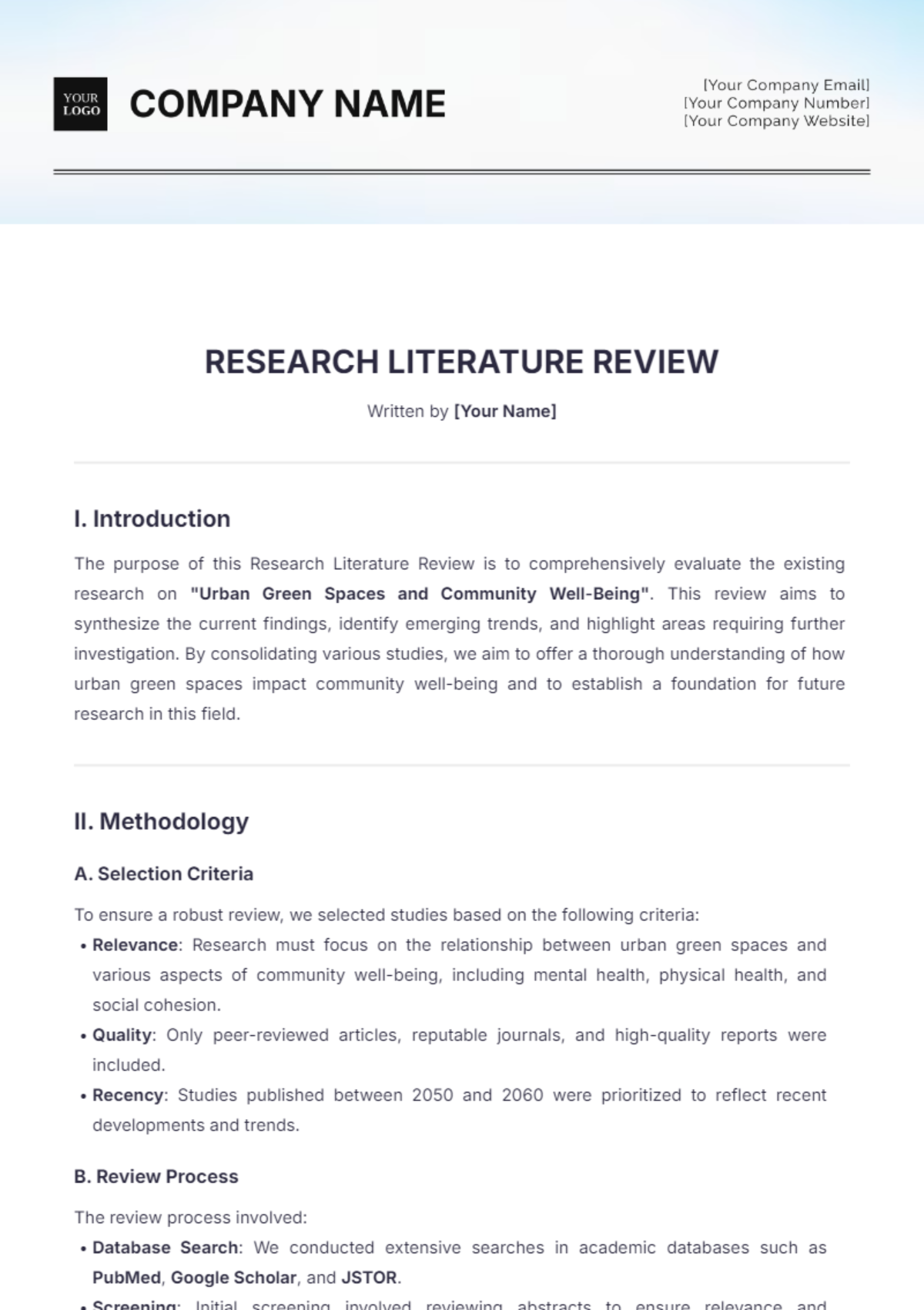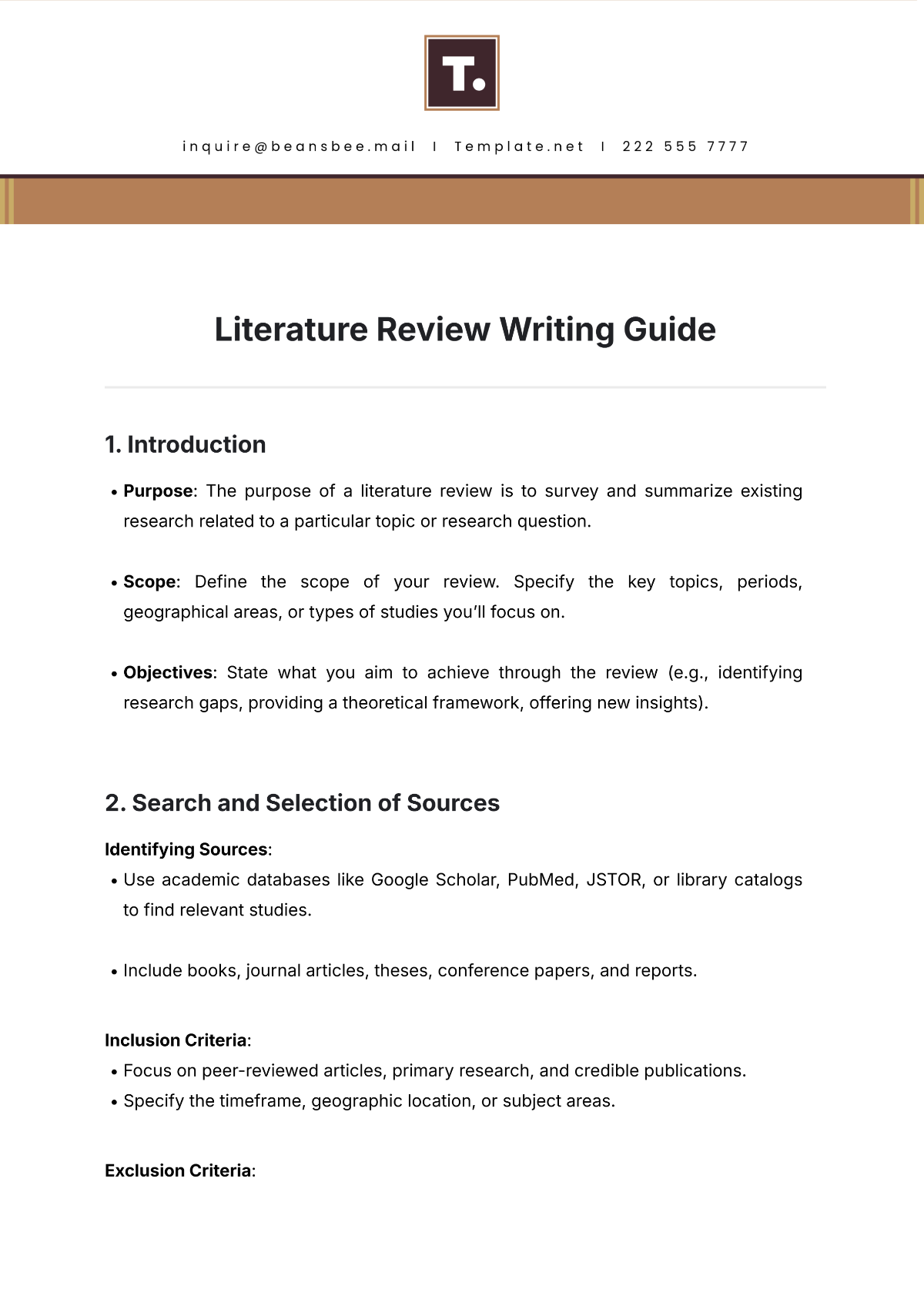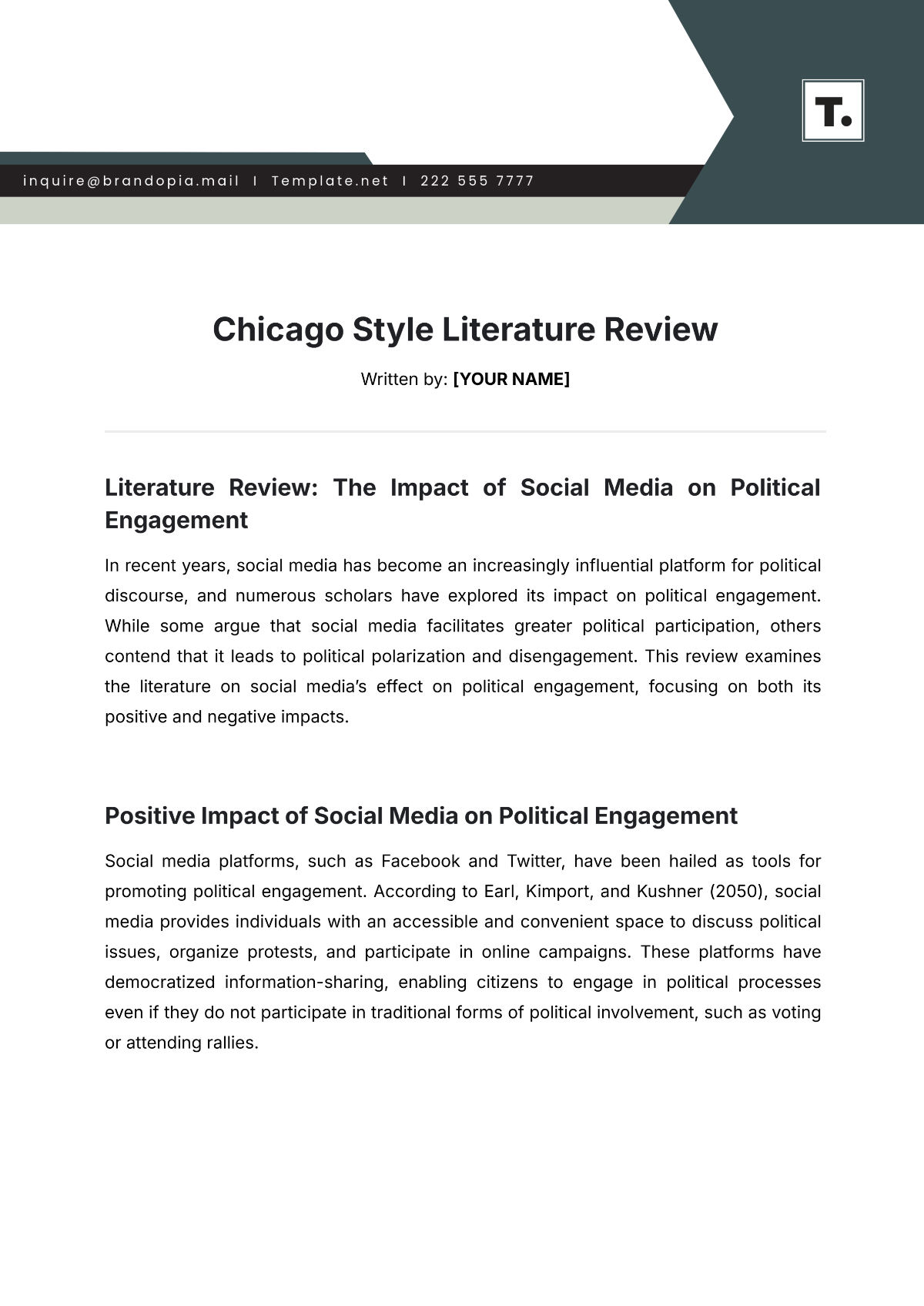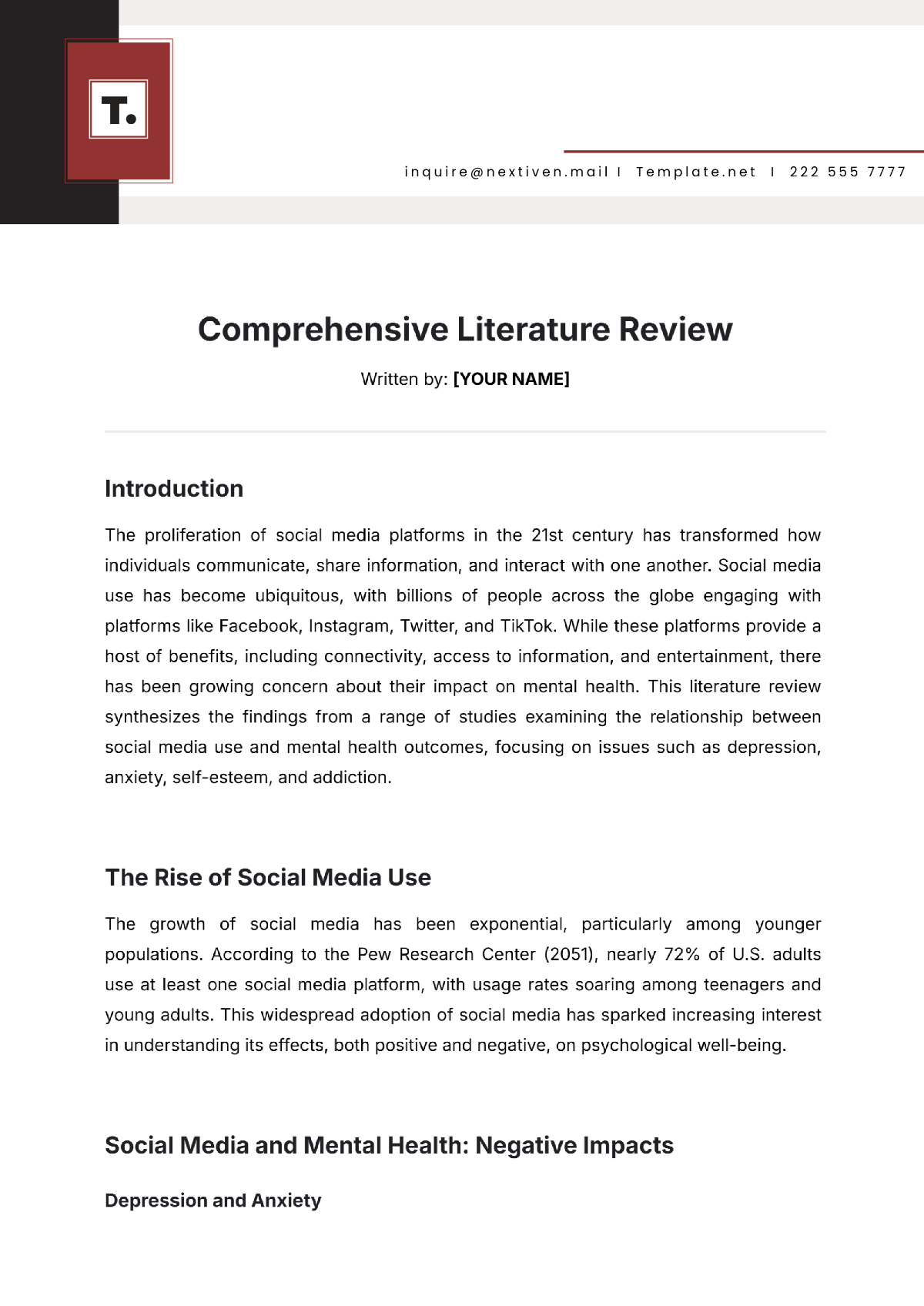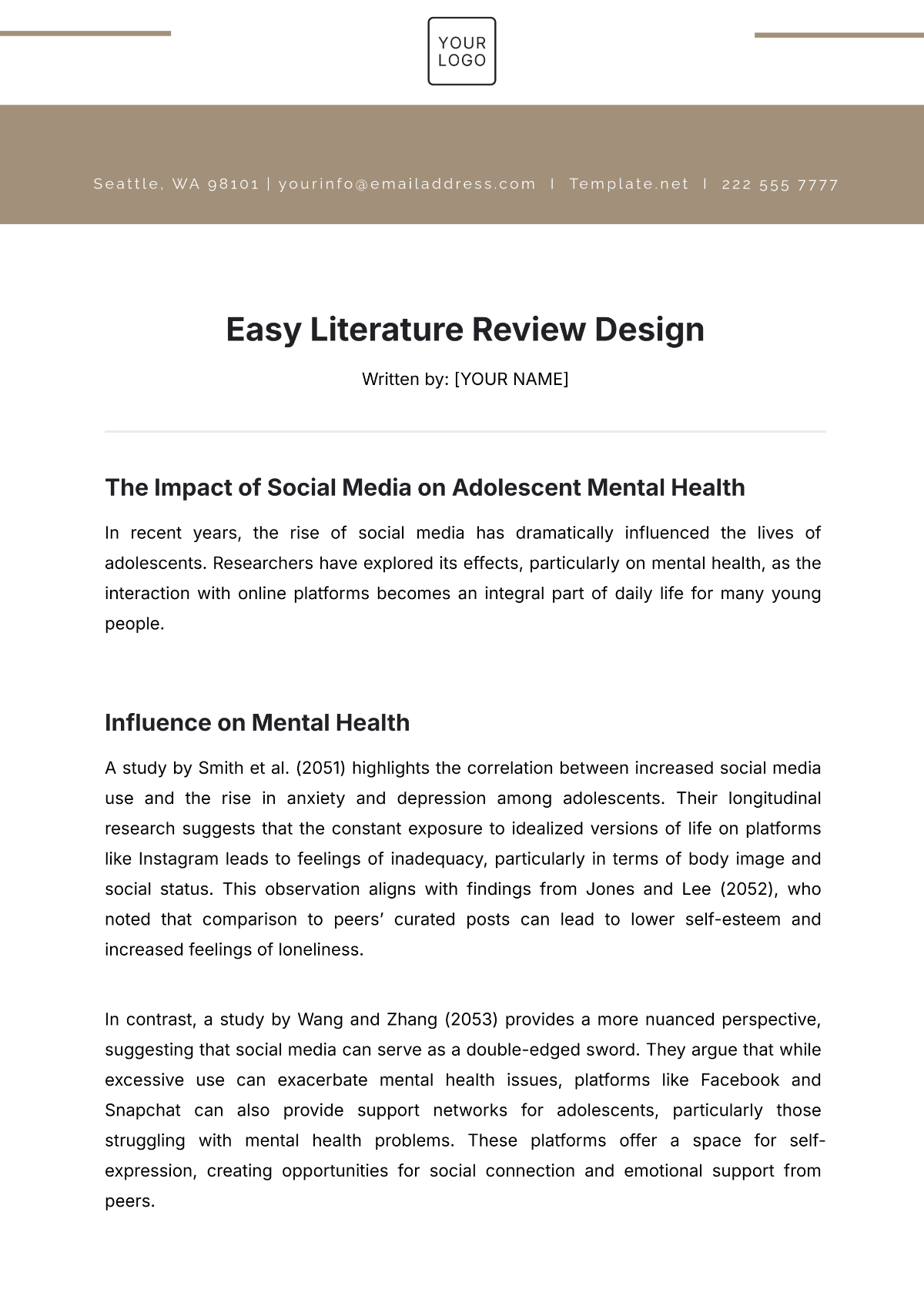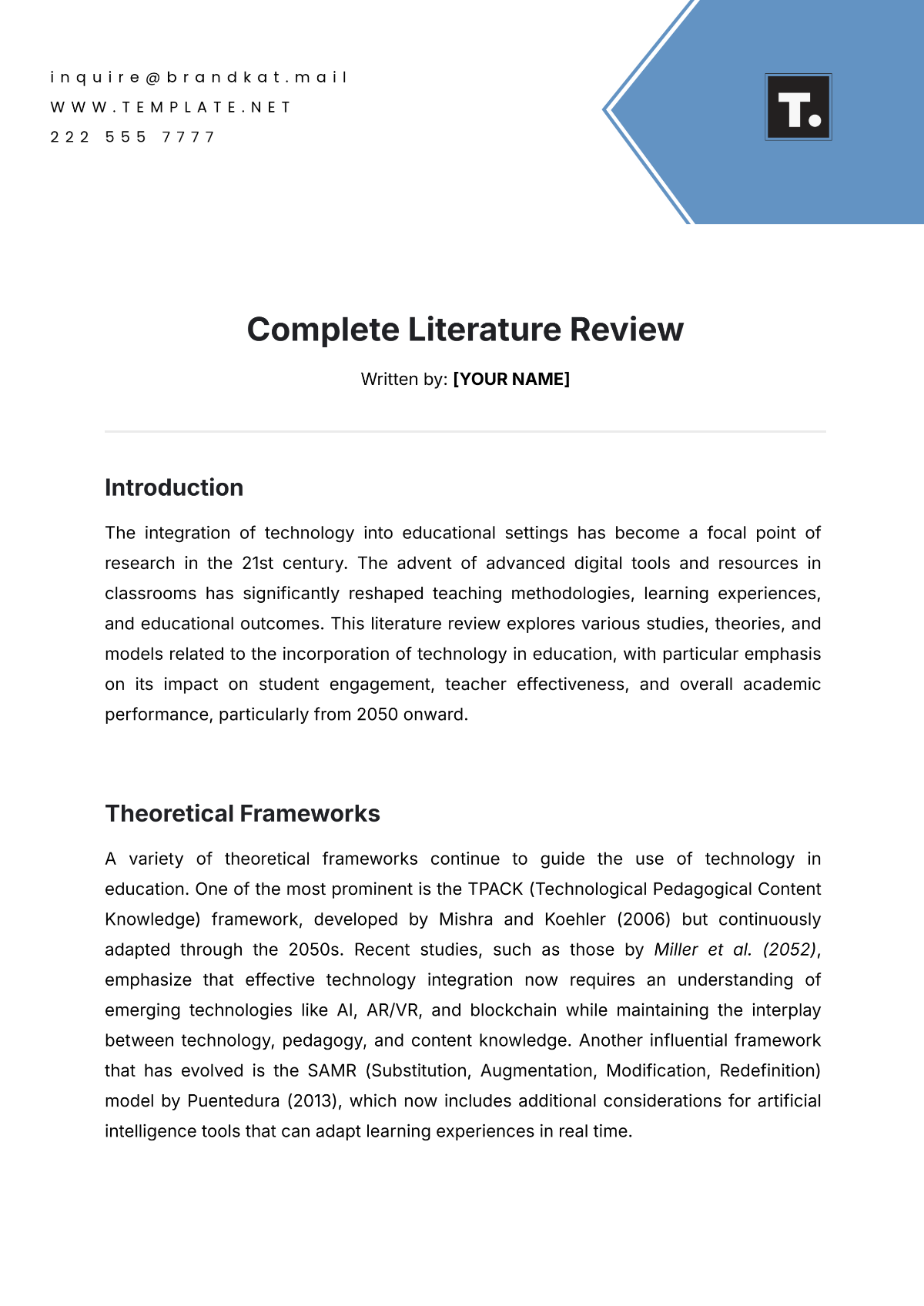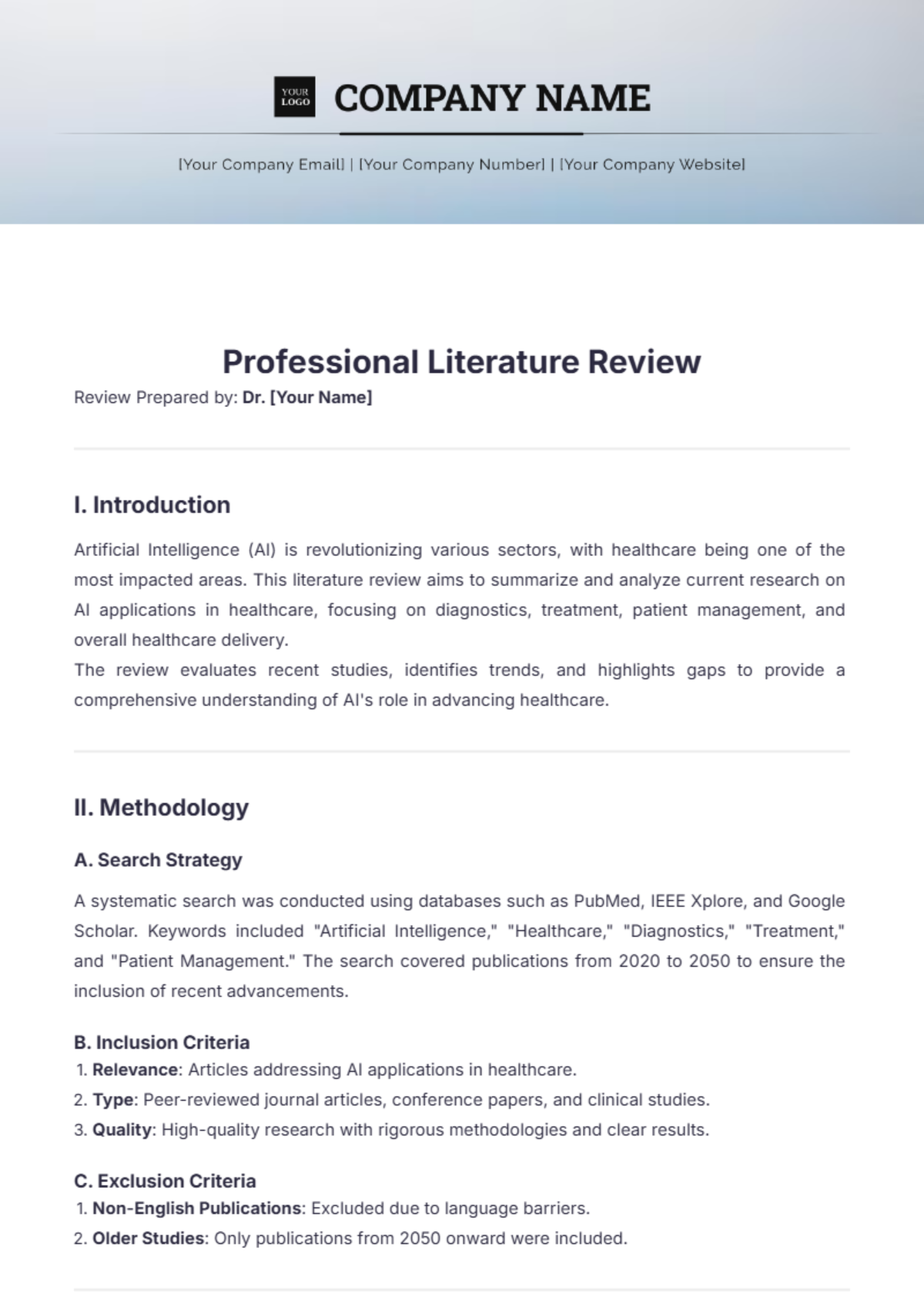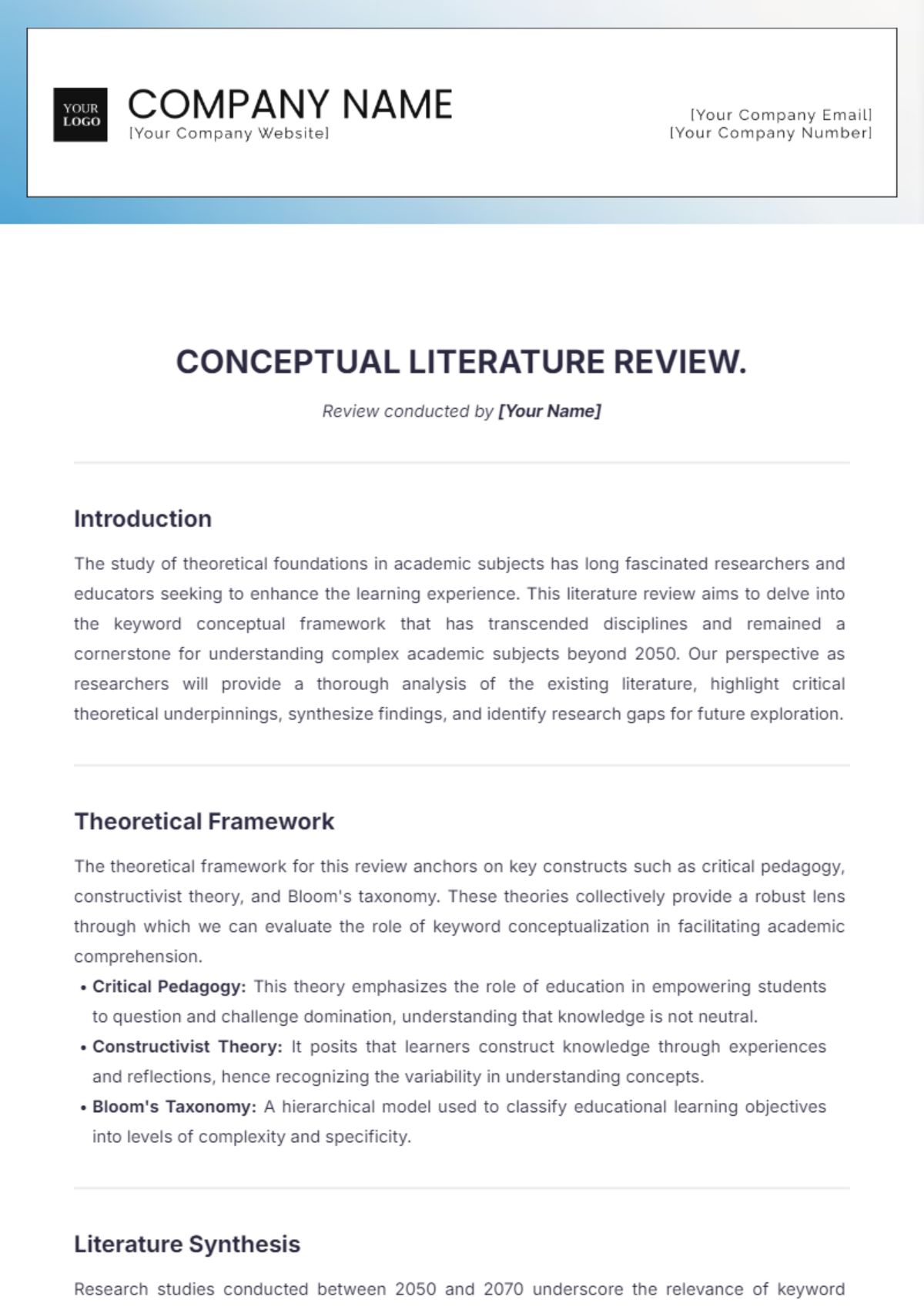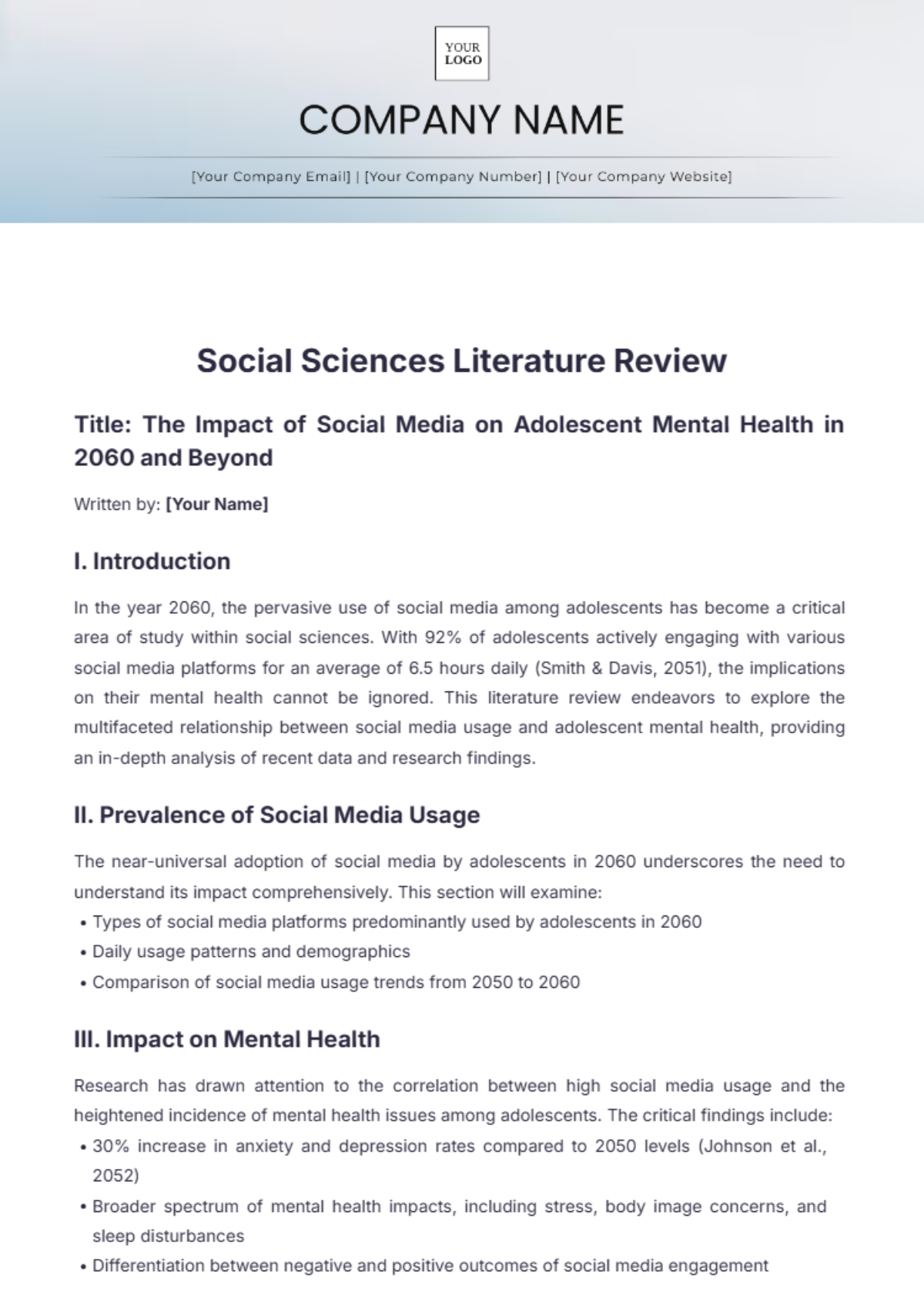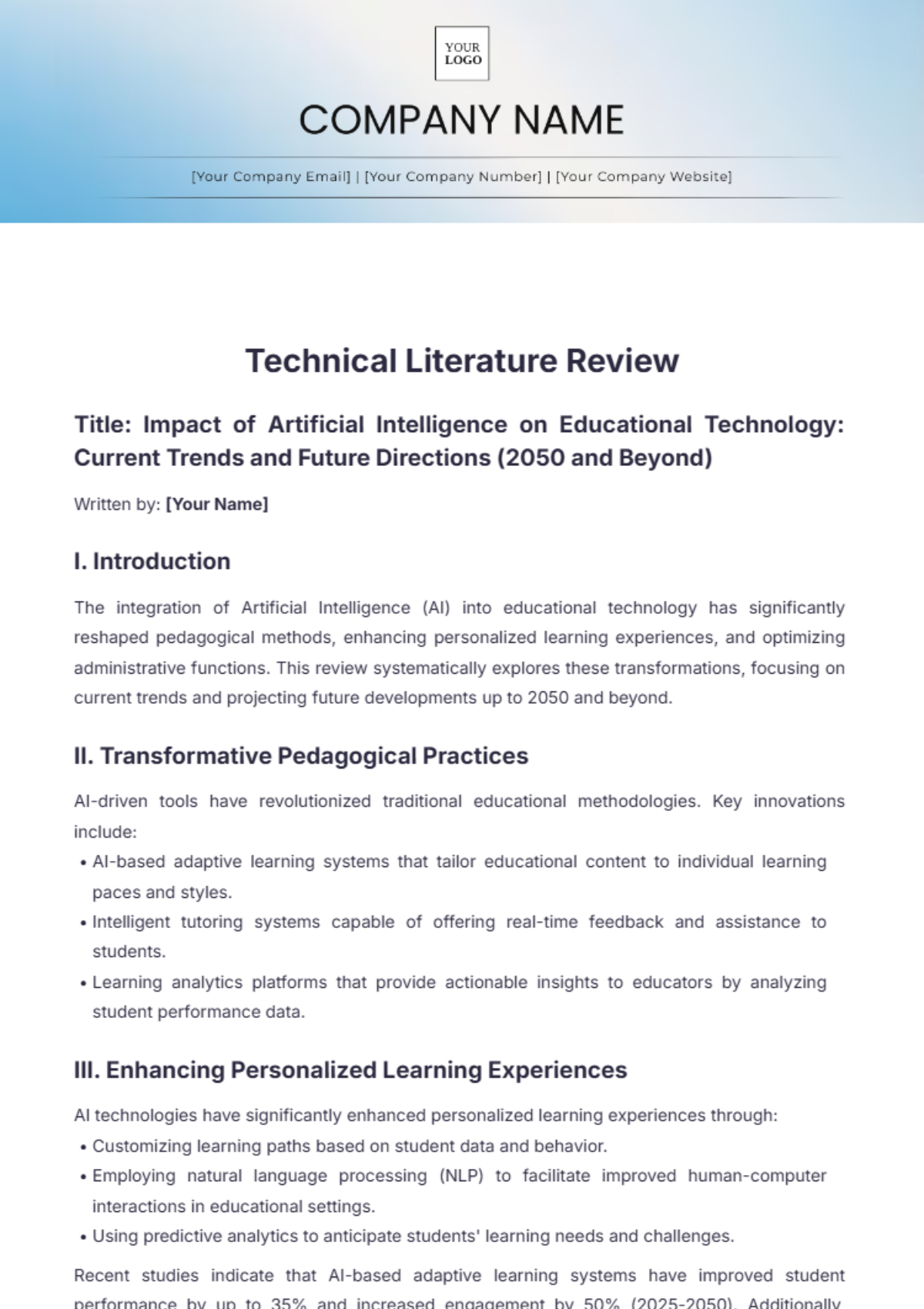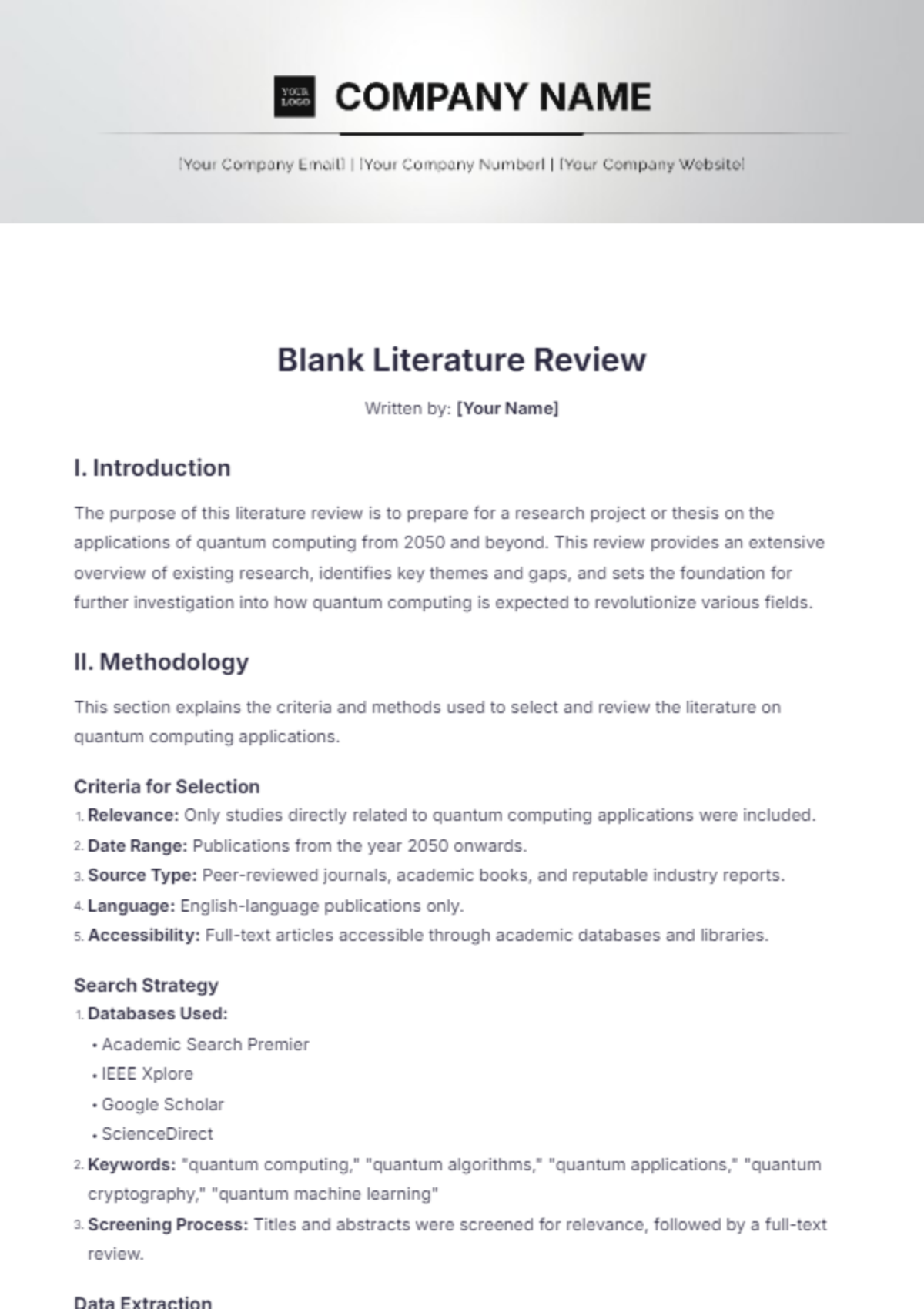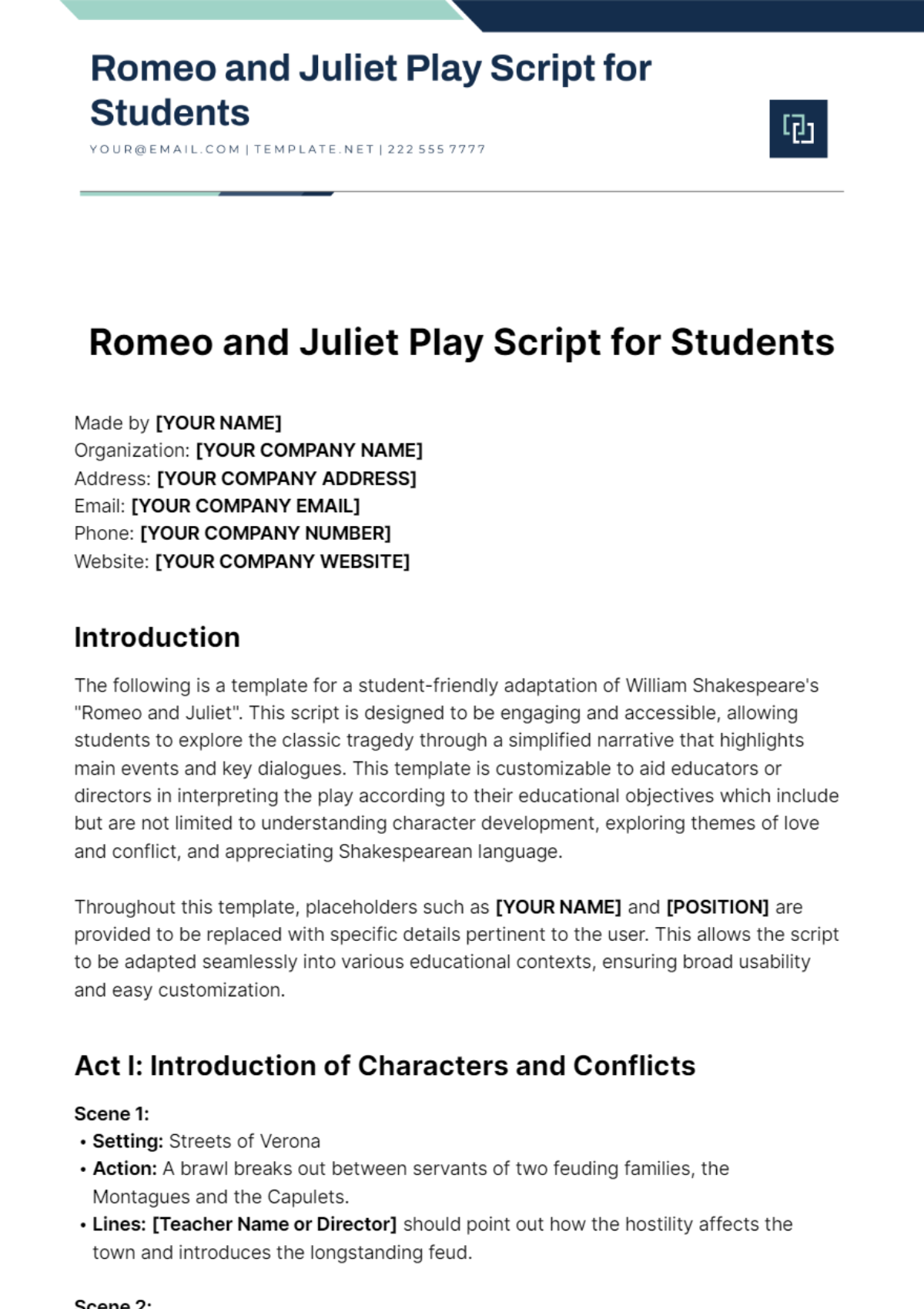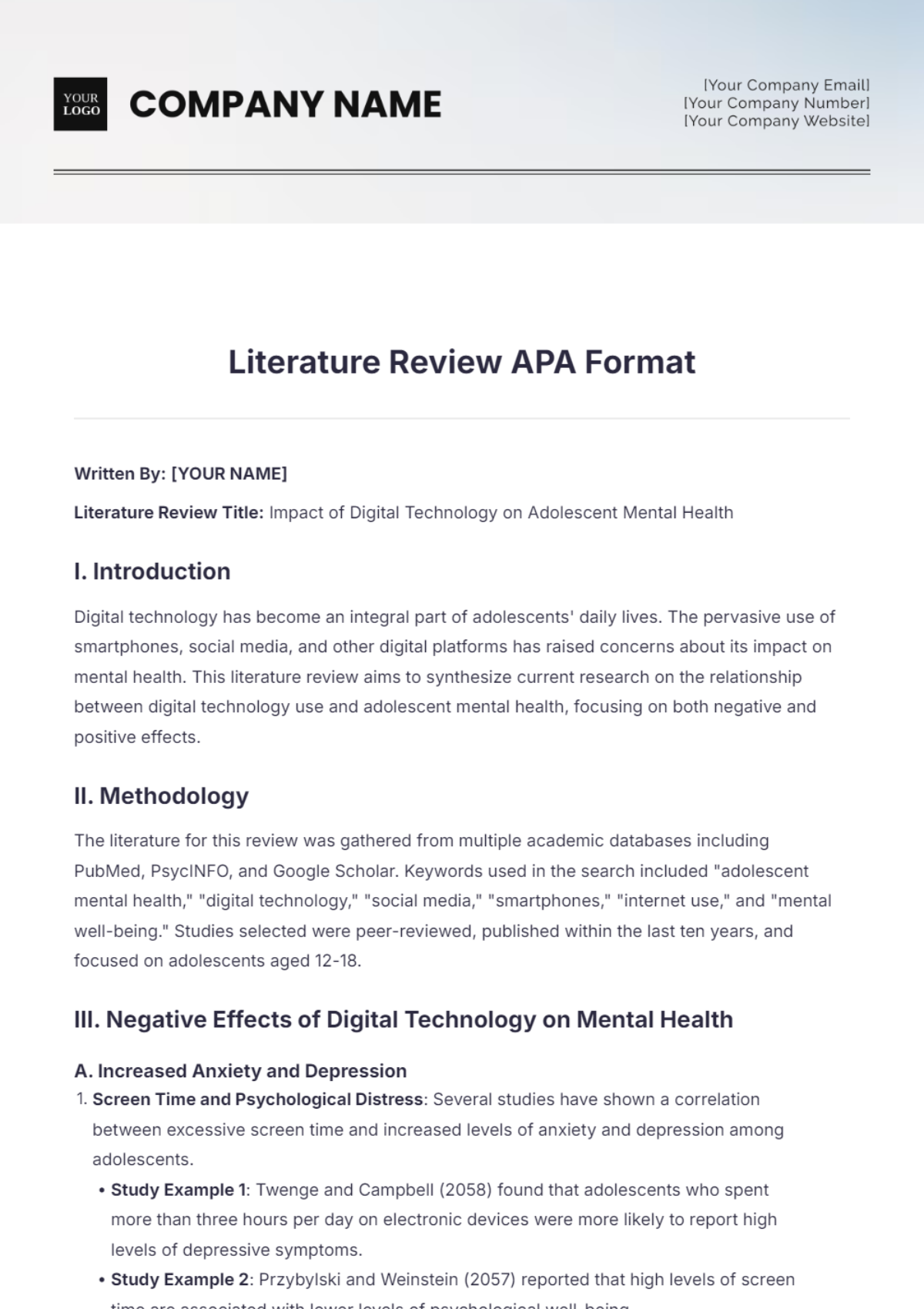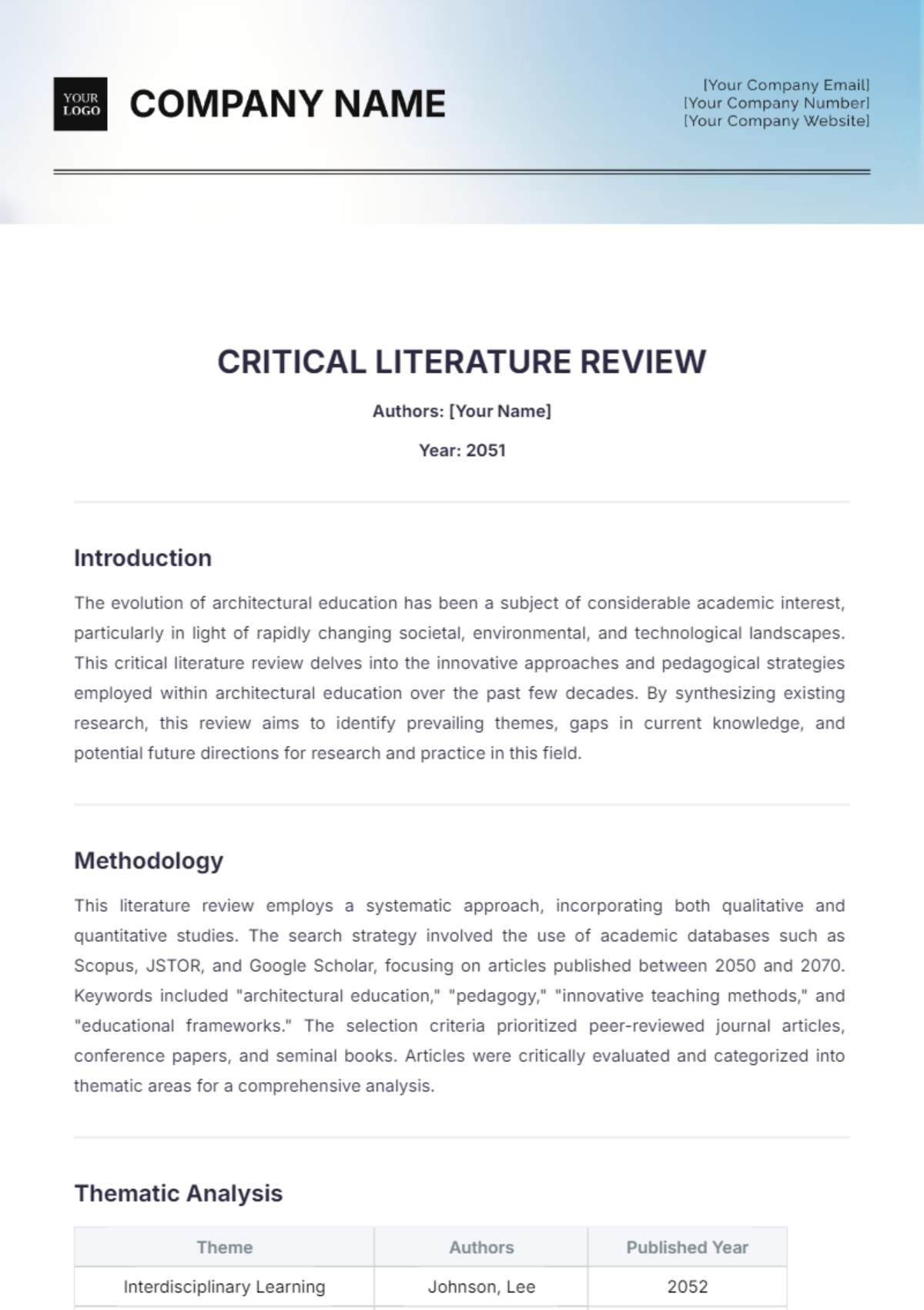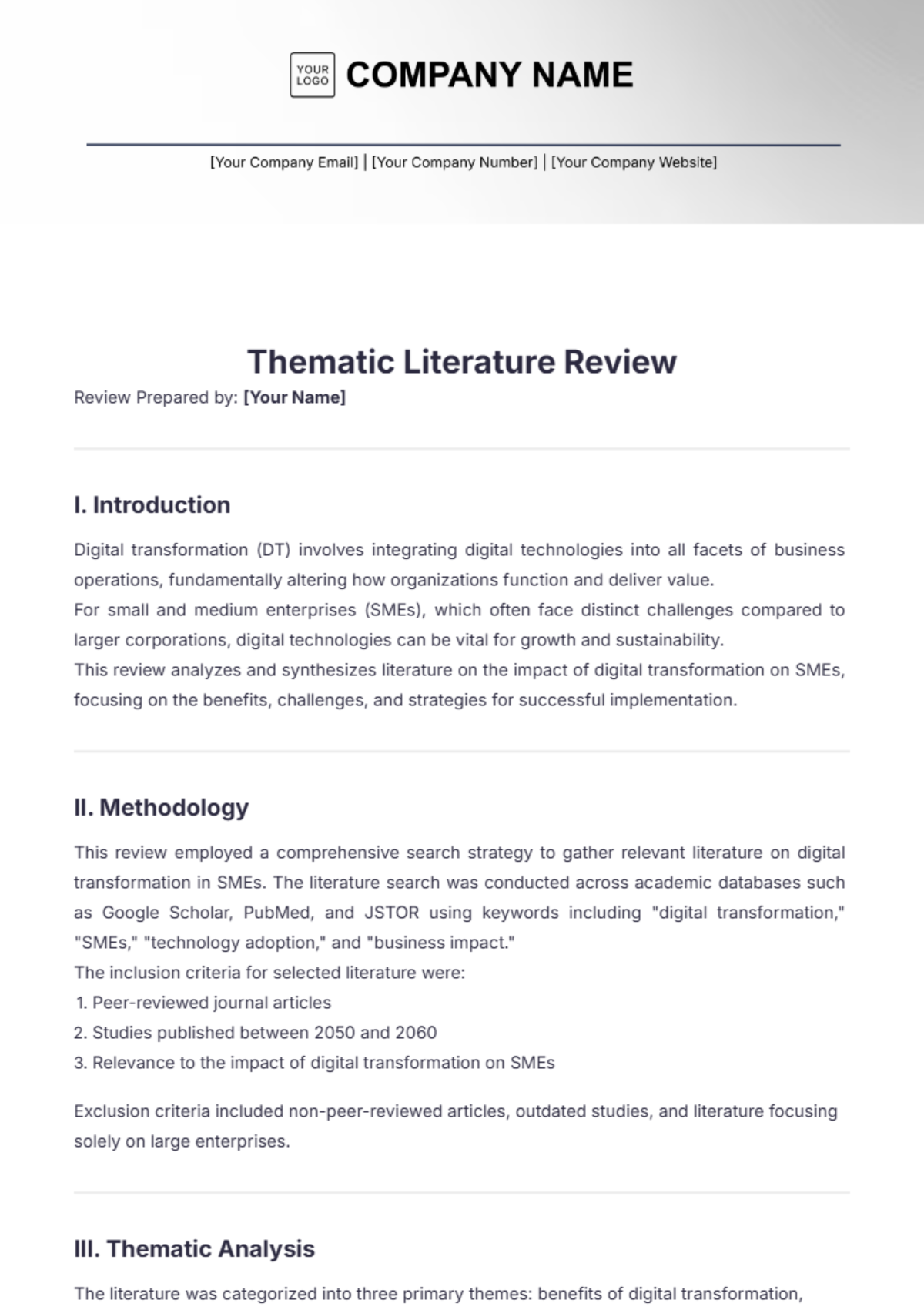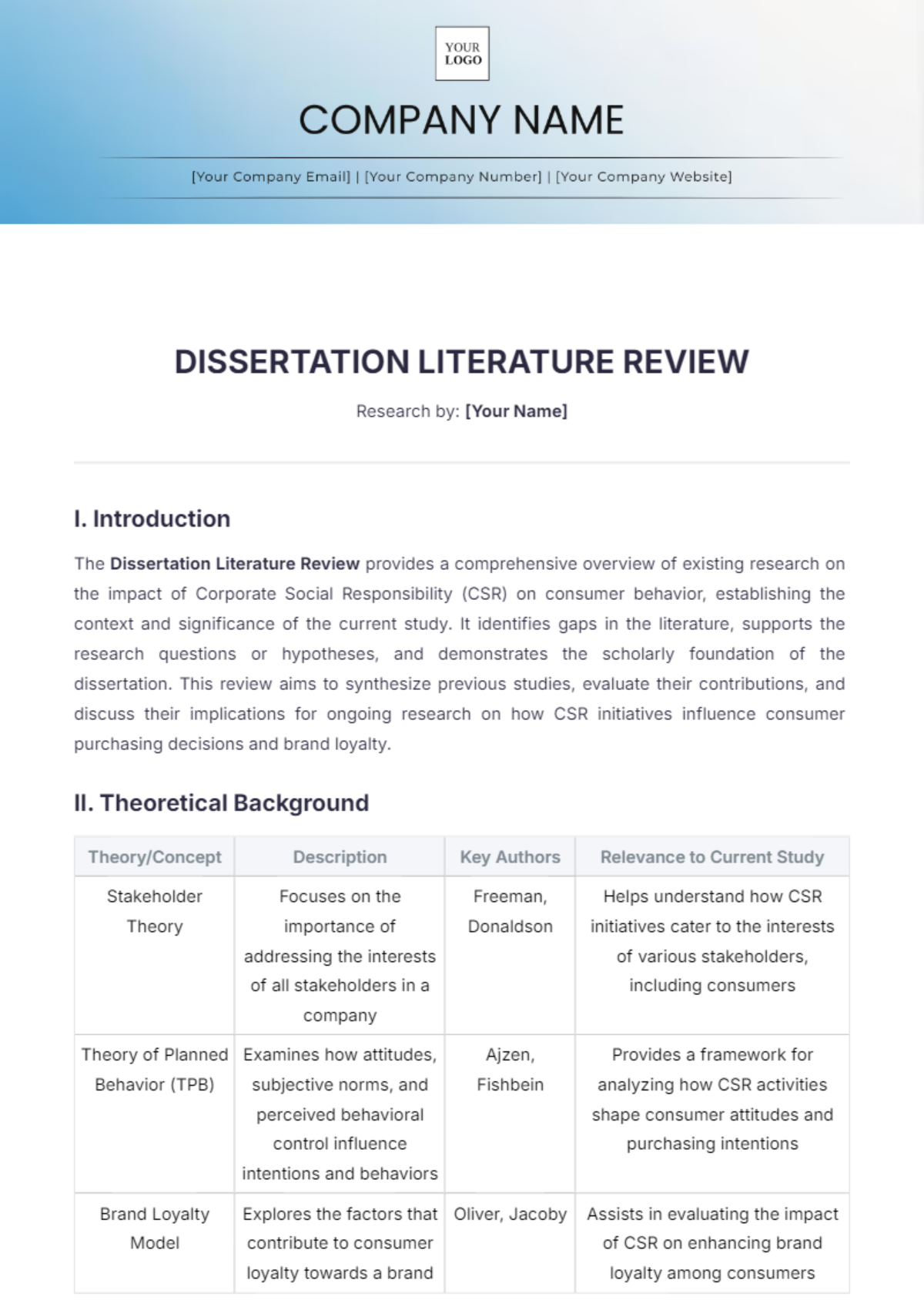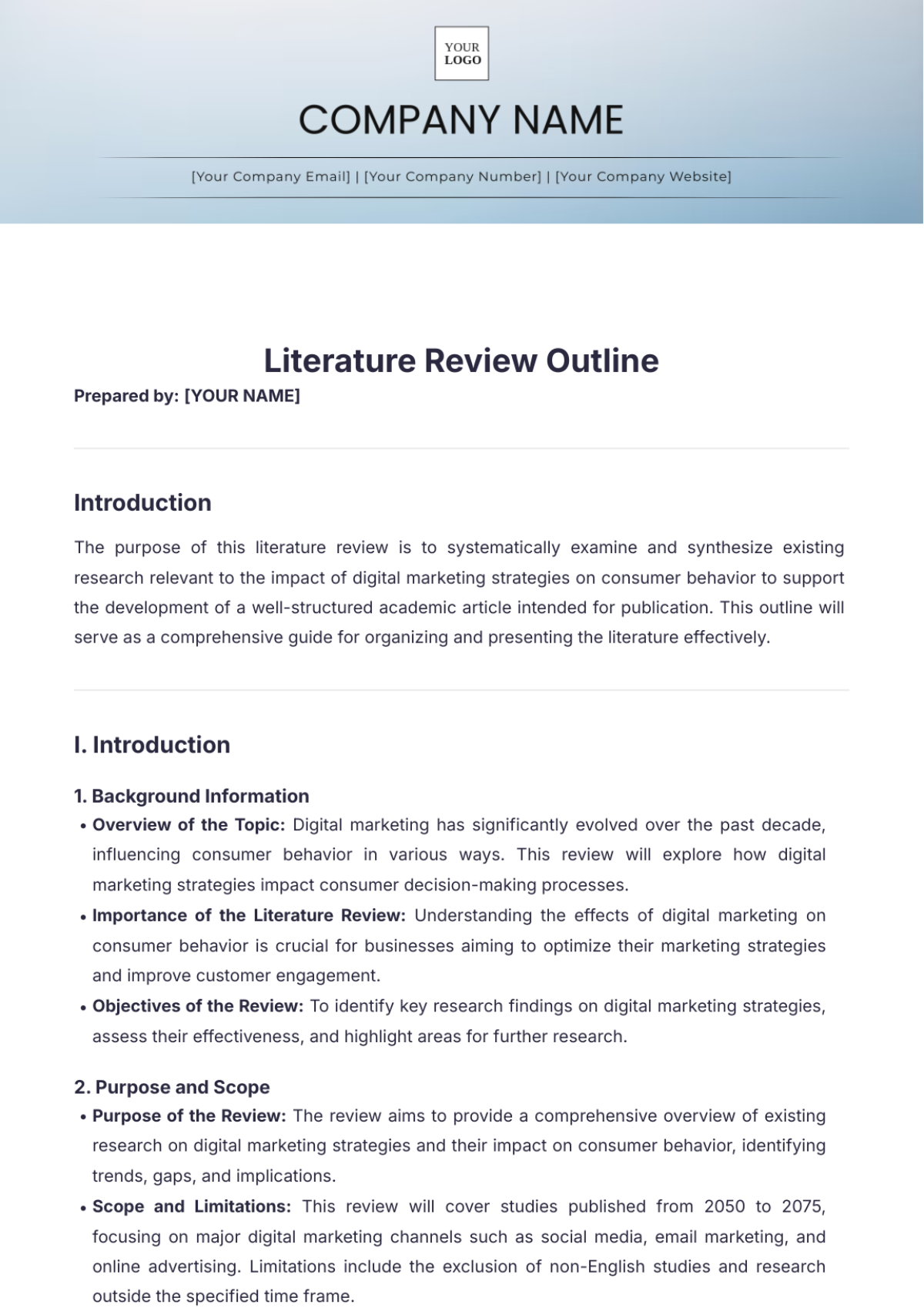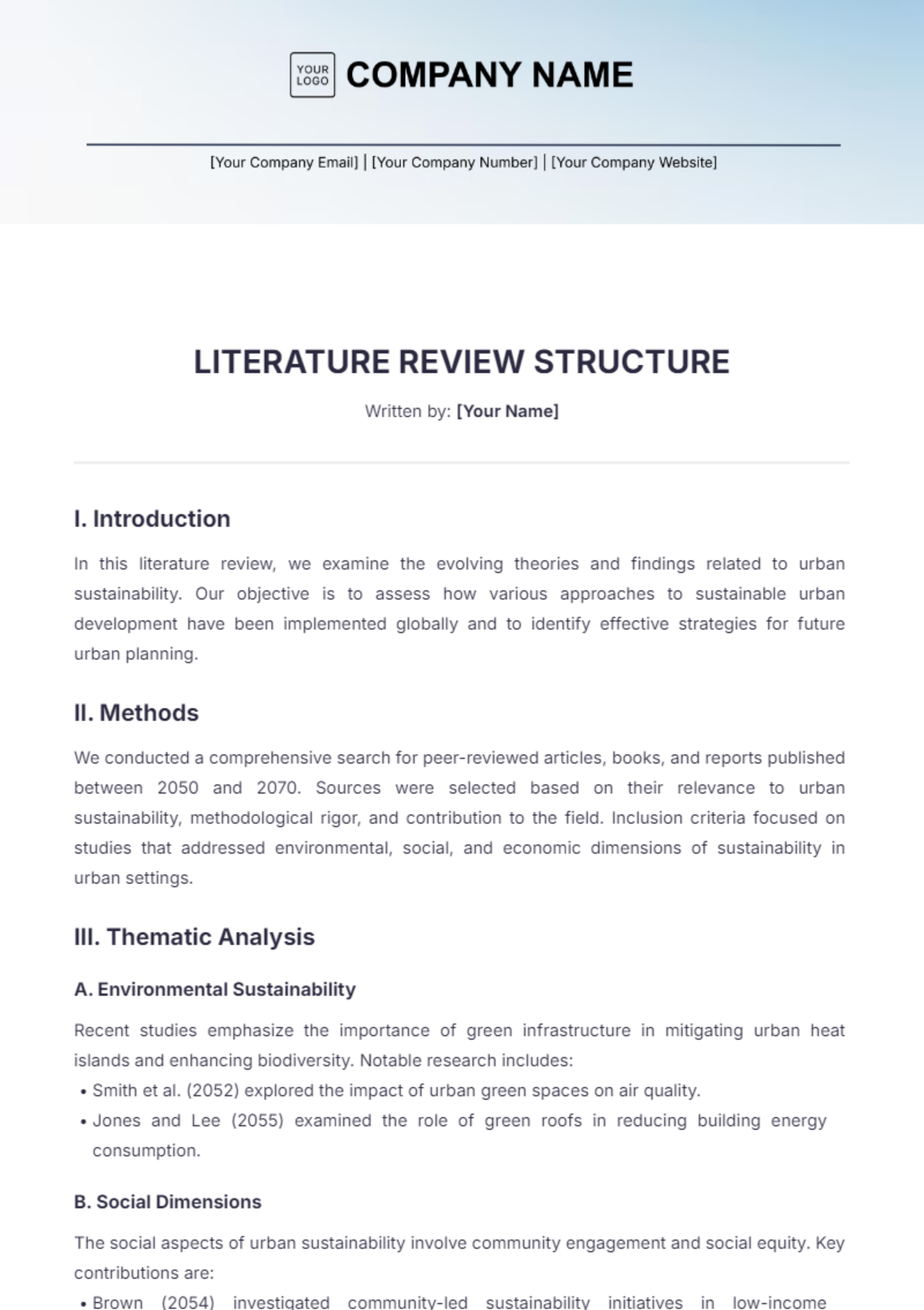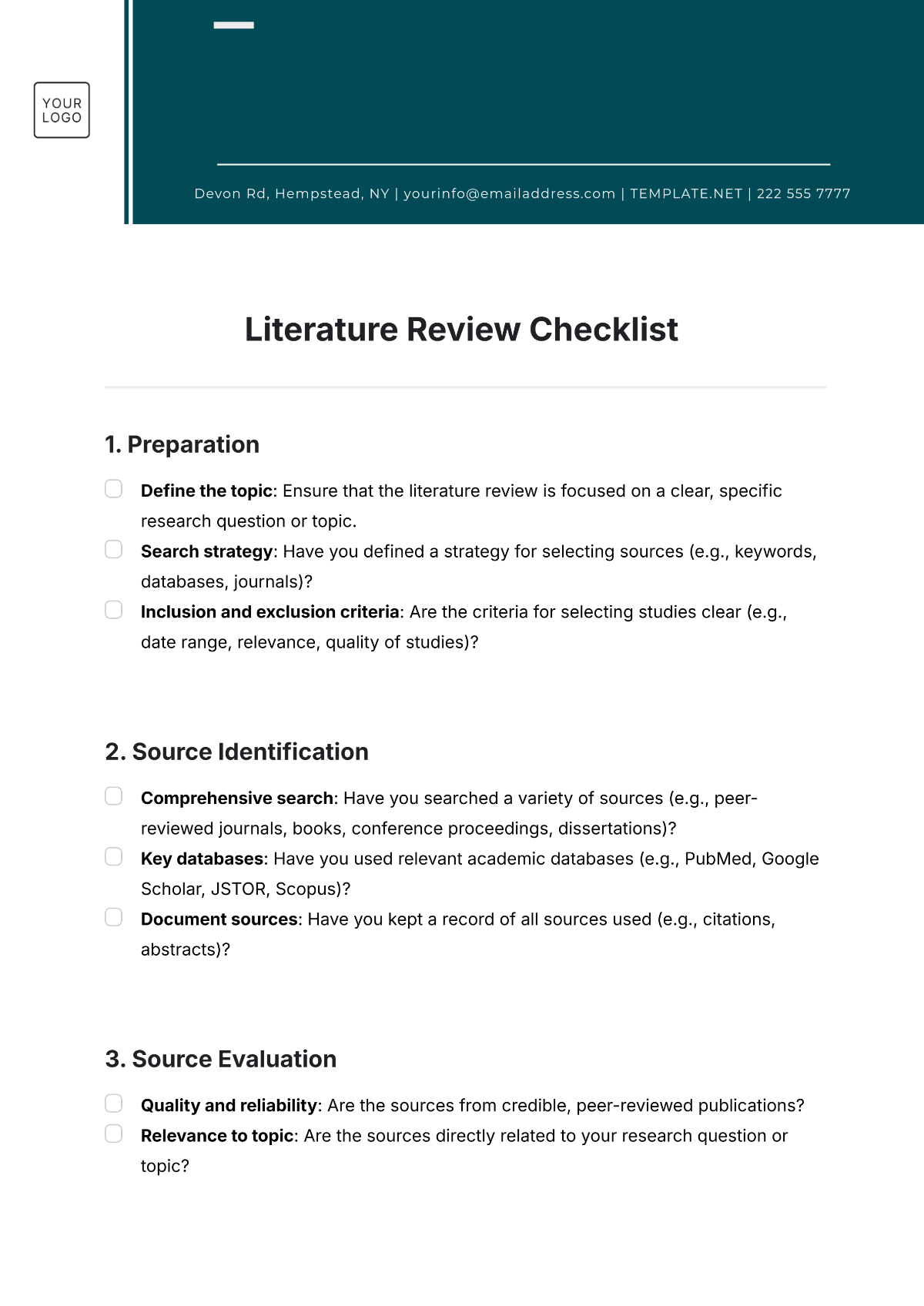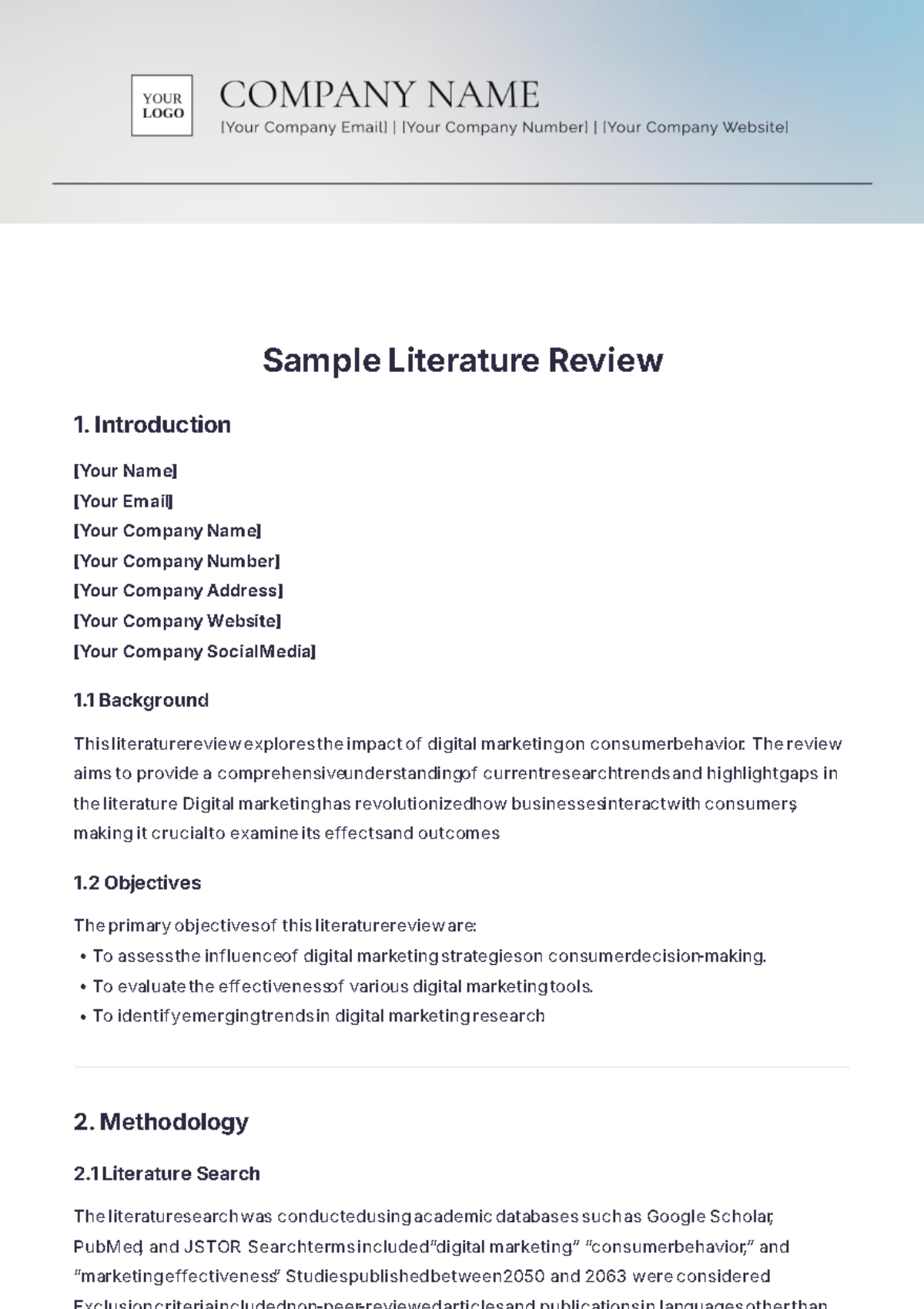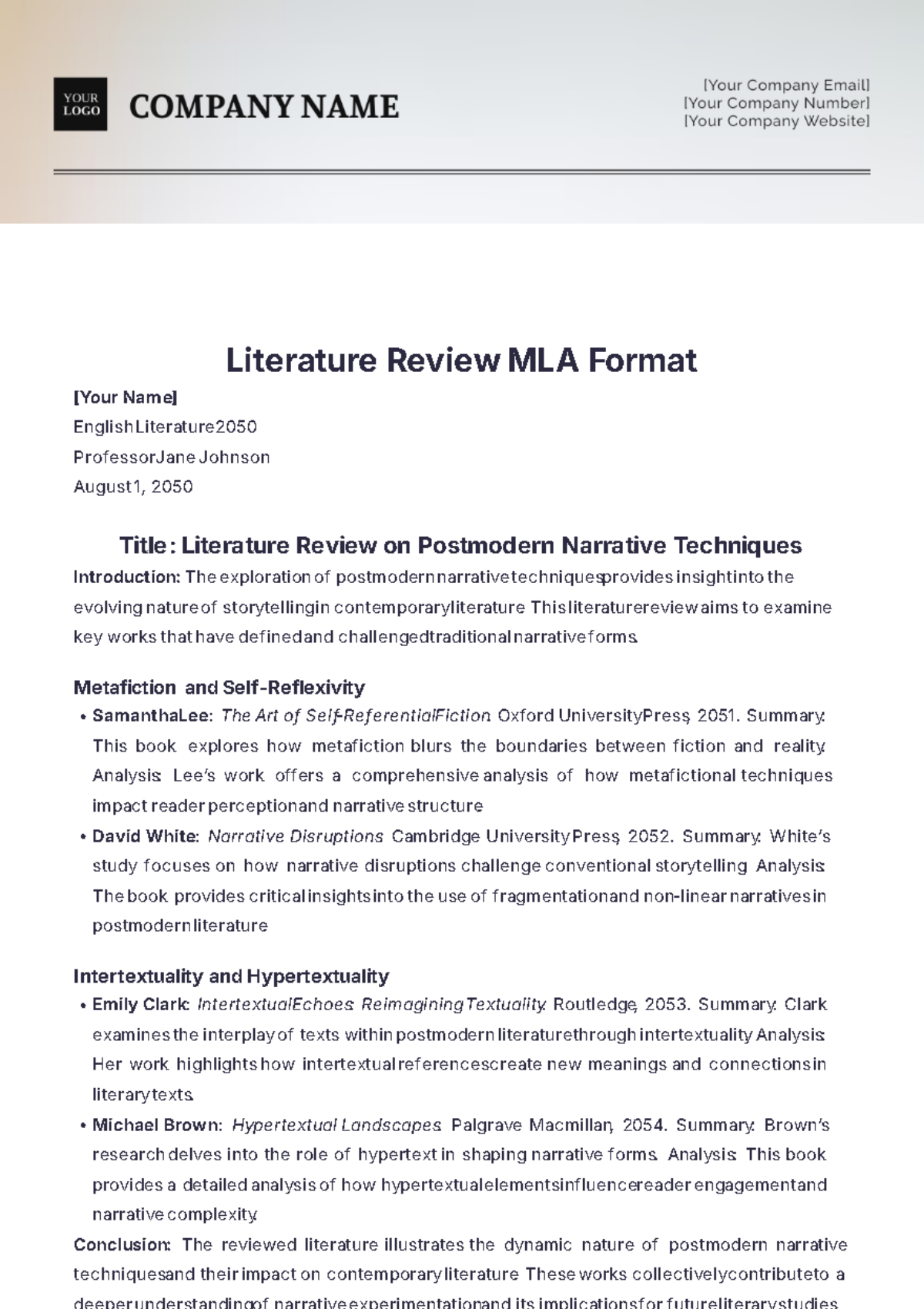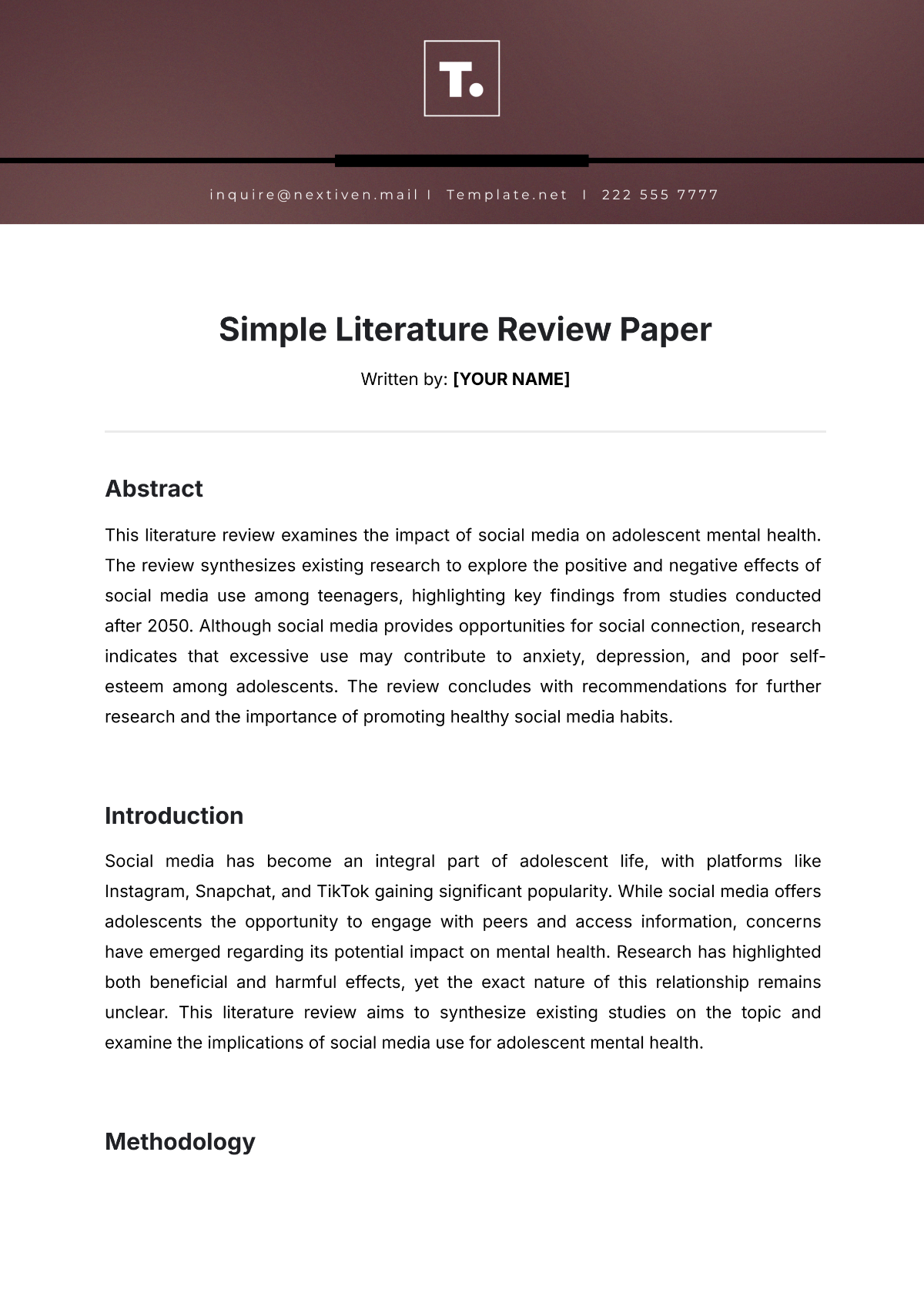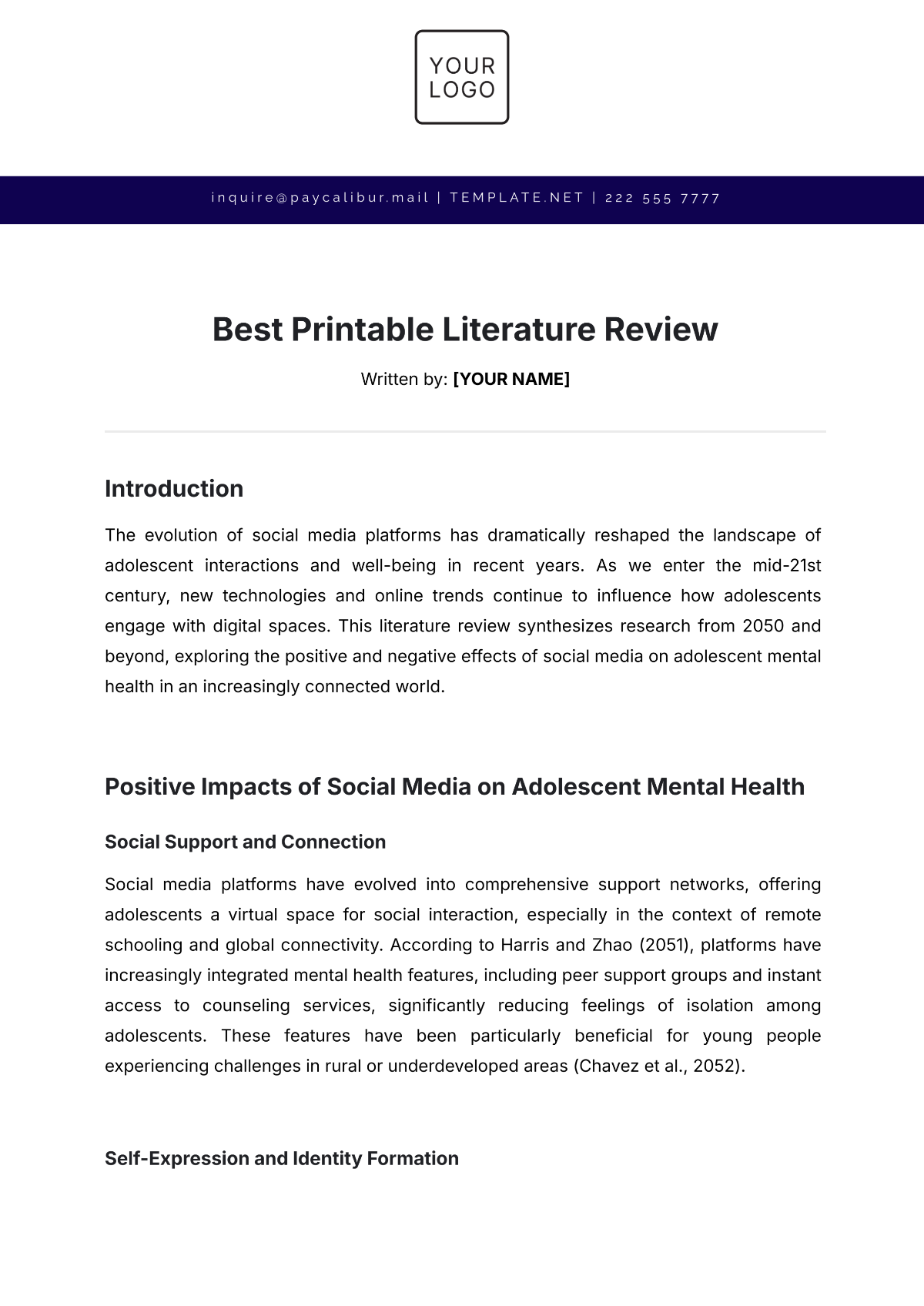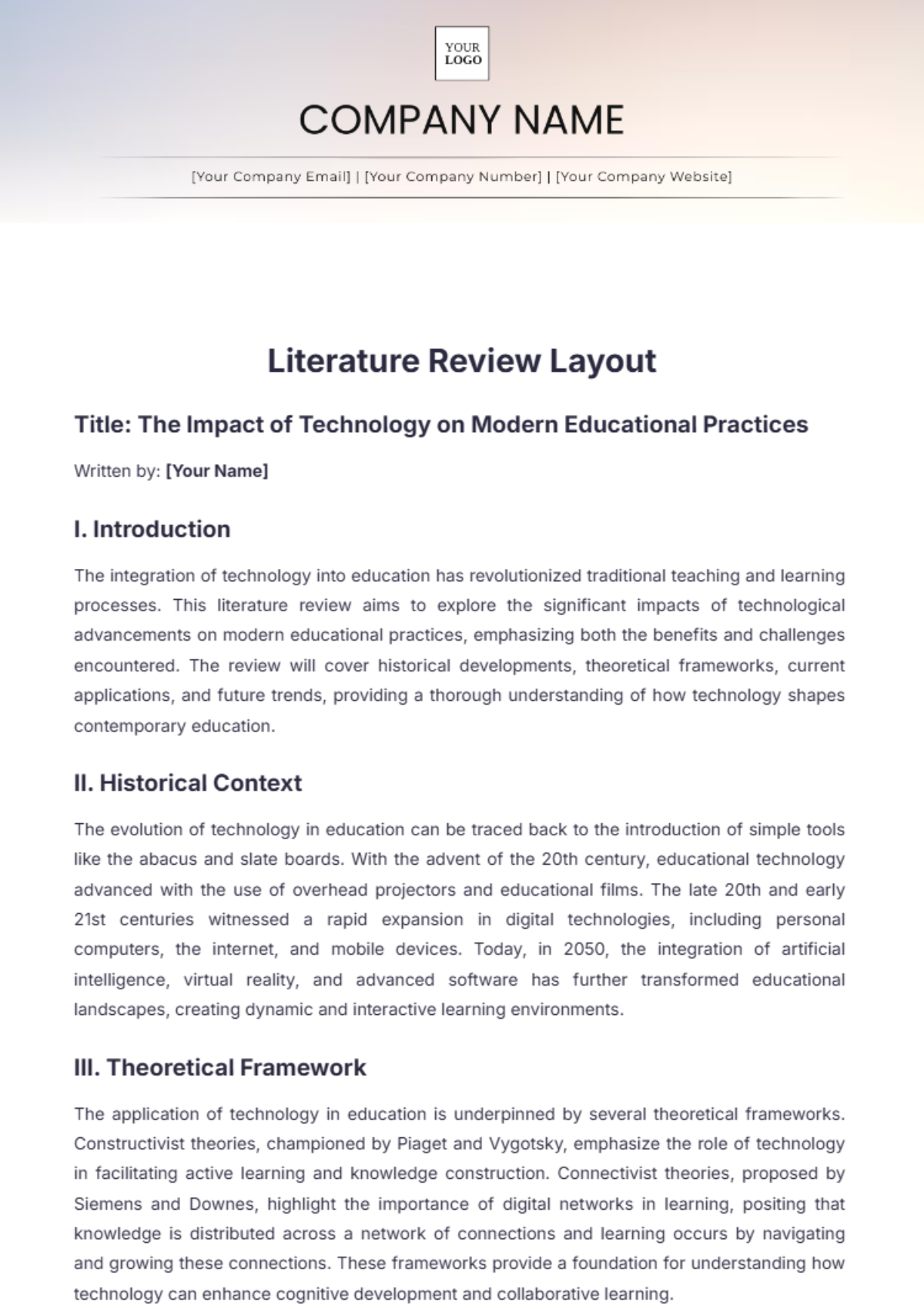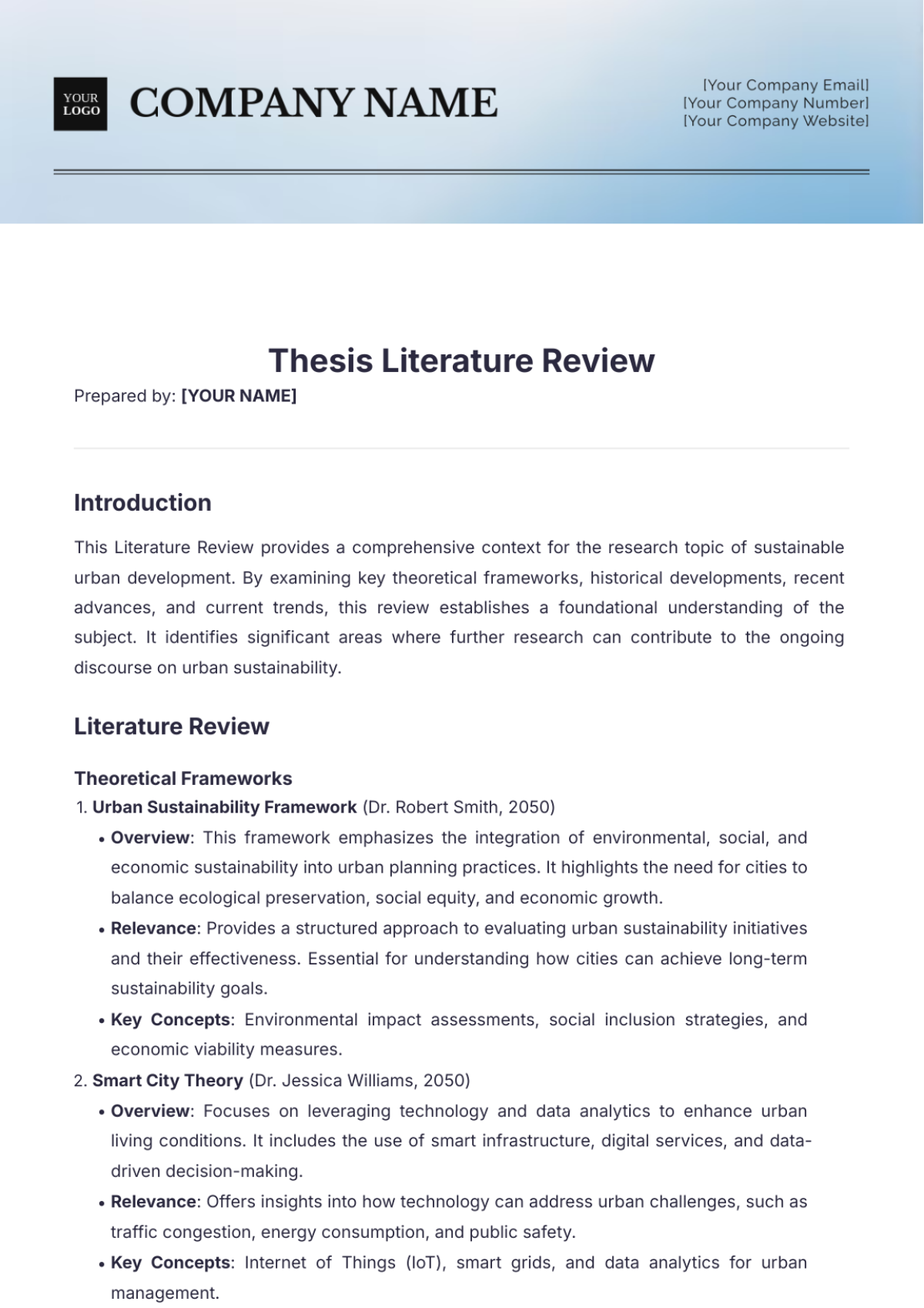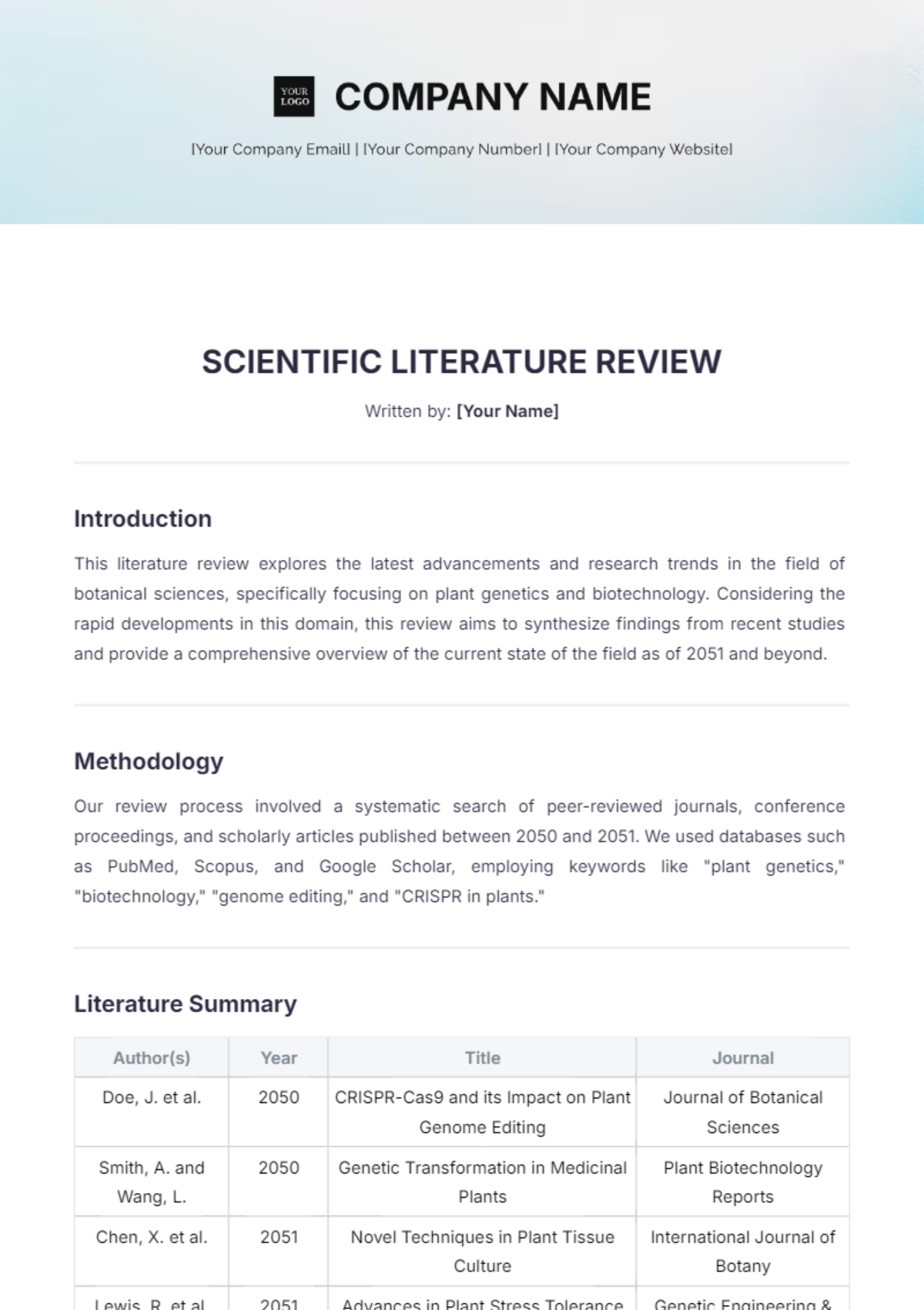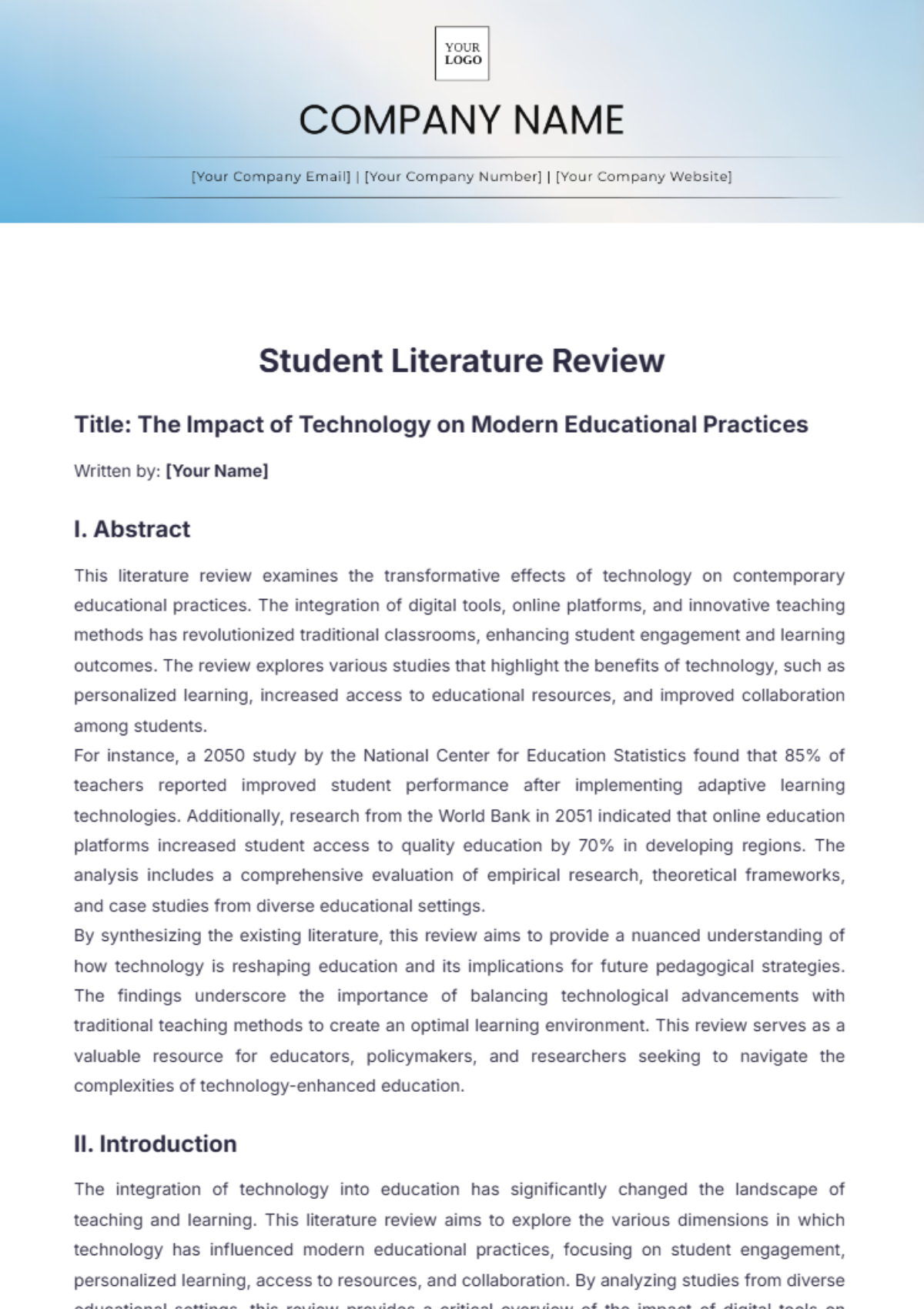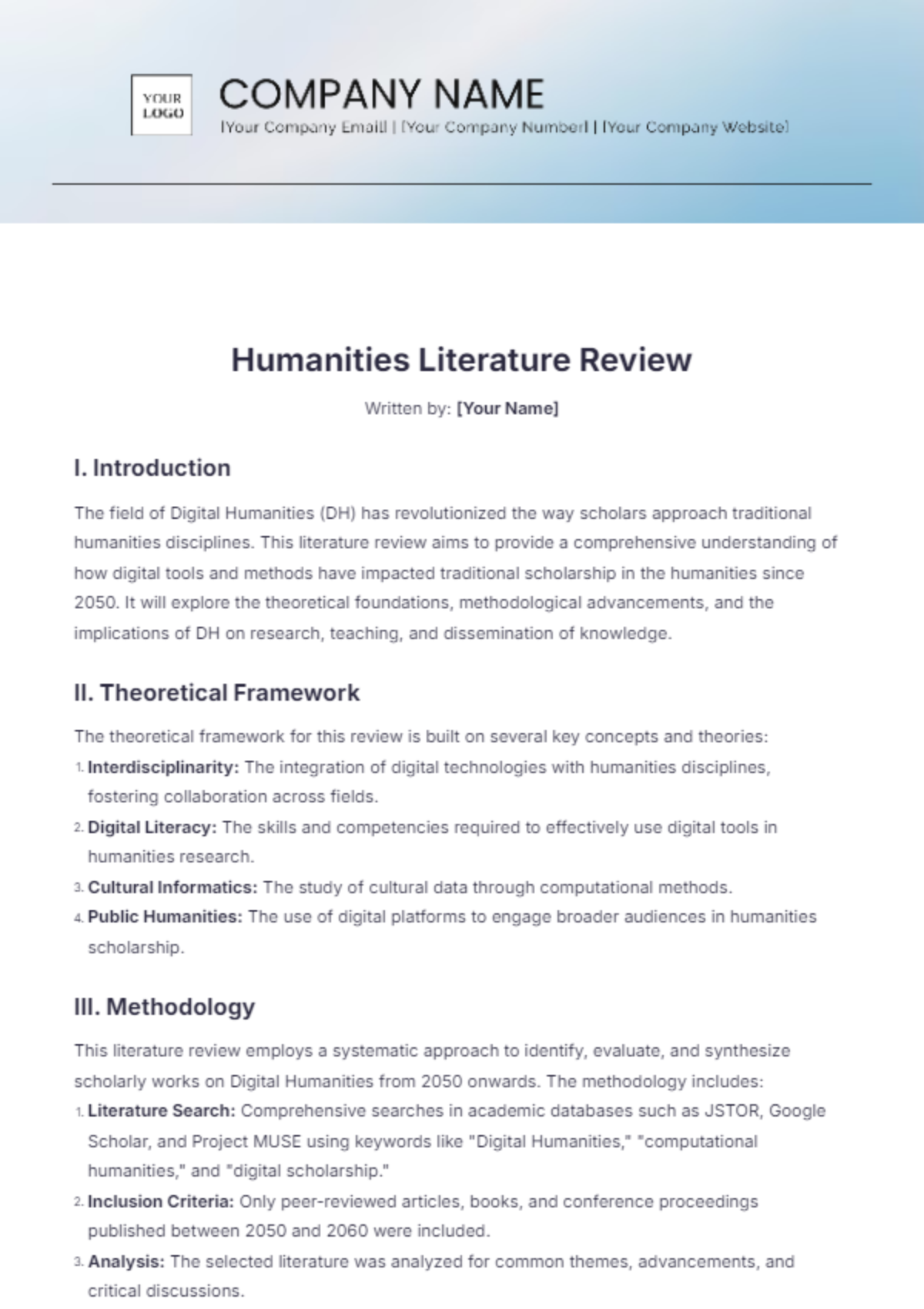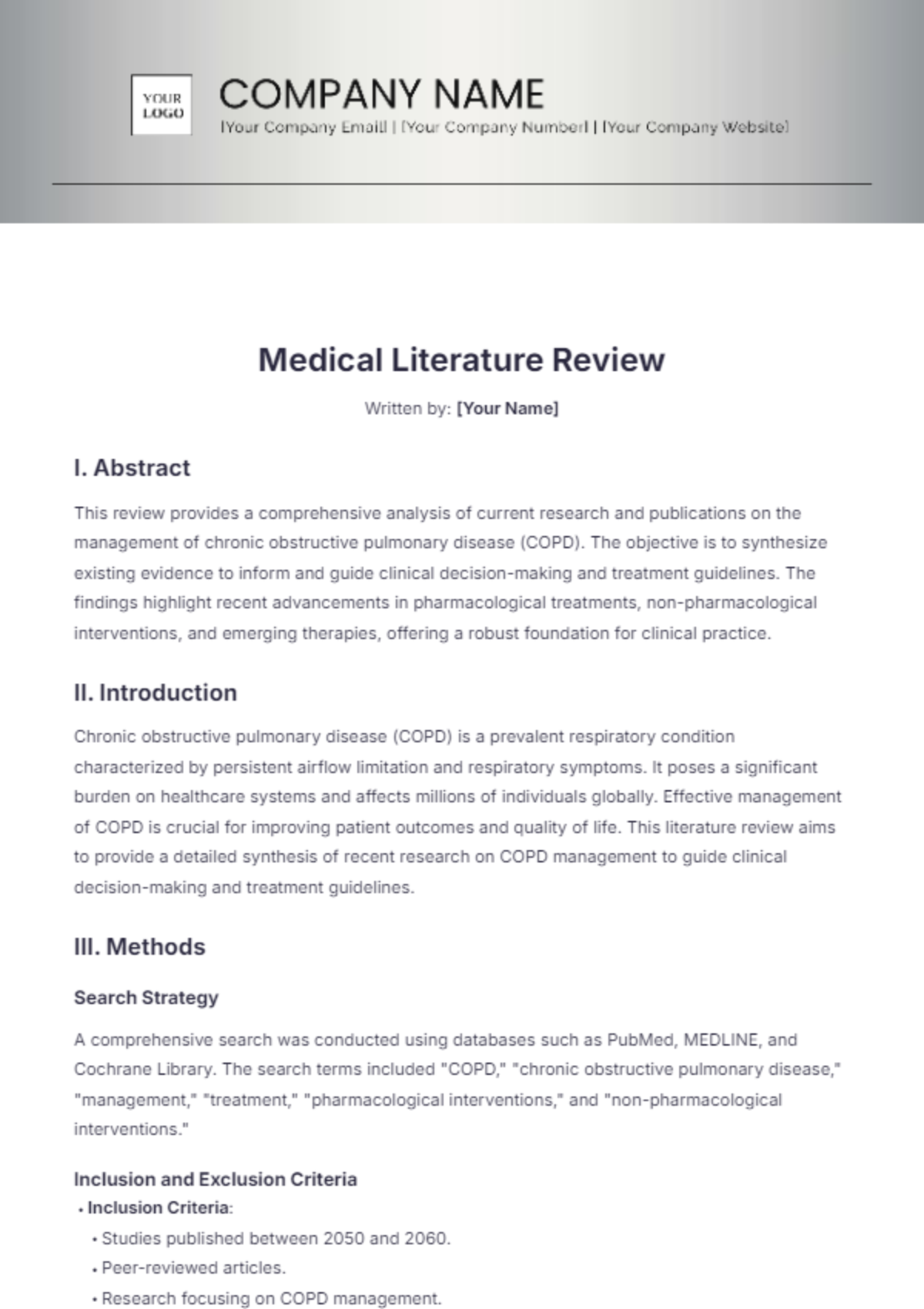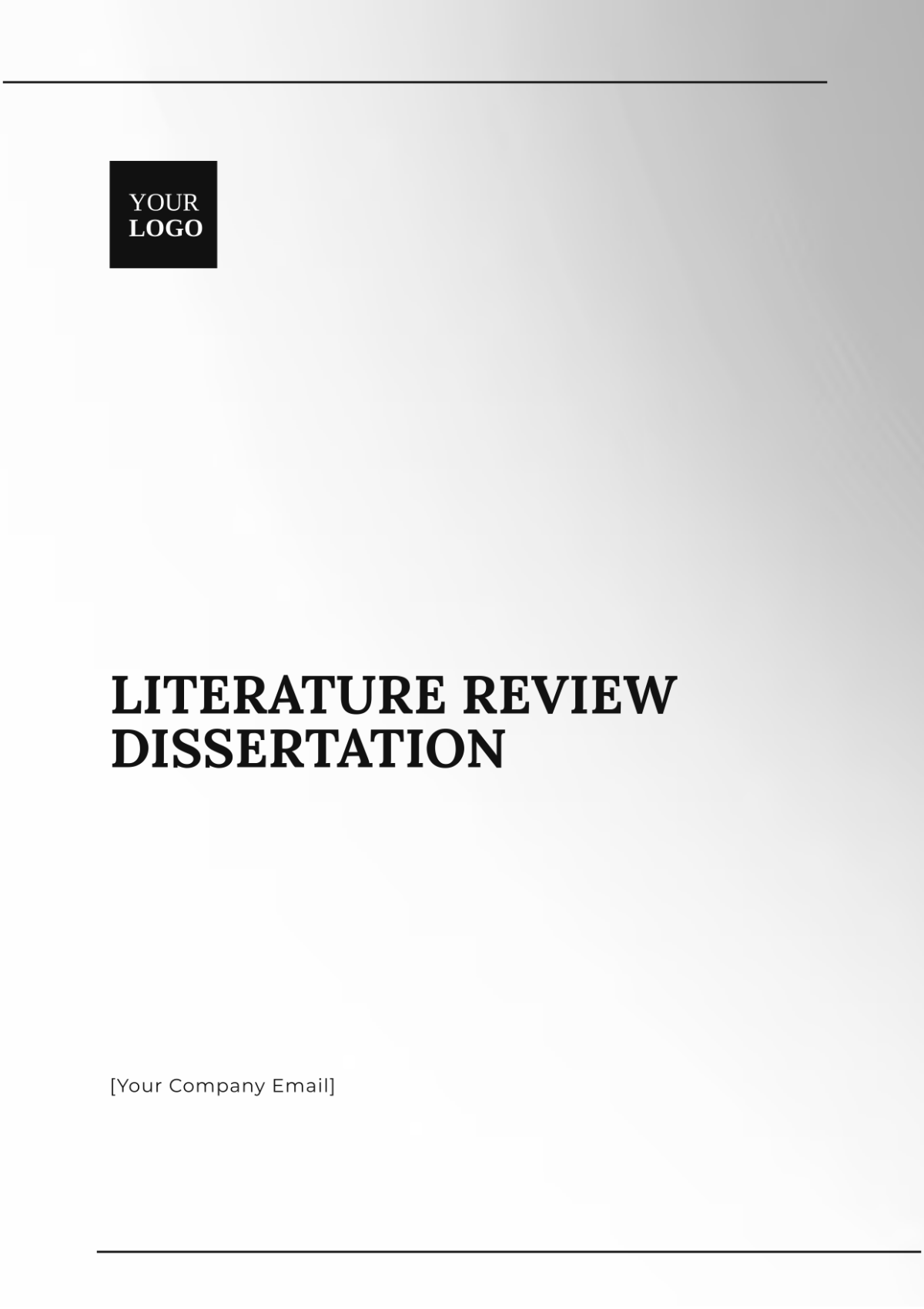Dissertation Literature Review
Written By: [YOUR NAME]
I. Introduction
The Dissertation Literature Review provides a comprehensive overview of existing research on the impact of Corporate Social Responsibility (CSR) on consumer behavior, establishing the context and significance of the current study. It identifies gaps in the literature, supports the research questions or hypotheses, and demonstrates the scholarly foundation of the dissertation. This review aims to synthesize previous studies, evaluate their contributions, and discuss their implications for ongoing research on how CSR initiatives influence consumer purchasing decisions and brand loyalty.
II. Theoretical Background
Stakeholder Theory
This theory emphasizes the importance of considering and balancing the interests of all stakeholders in organizational decision-making, including employees, customers, shareholders, suppliers, and the community. It highlights how companies must address the needs and expectations of diverse groups to operate effectively.
Key Authors: Freeman, Donaldson, Preston
Relevance to Current Study: The theory helps understand how Corporate Social Responsibility (CSR) initiatives cater to the interests of various stakeholders, especially consumers, and influence company strategies to meet these needs.
Theory of Planned Behavior (TPB)
The Theory of Planned Behavior examines how individual behaviors are influenced by attitudes, subjective norms, and perceived behavioral control. These factors together shape behavioral intentions and subsequent actions.
Key Authors: Ajzen, Fishbein
Relevance to Current Study: TPB provides a framework for analyzing how CSR activities shape consumer attitudes and influence their intentions, leading to behaviors such as purchasing decisions and brand engagement.
Brand Loyalty Model
The Brand Loyalty Model investigates the factors that contribute to consumer loyalty, such as satisfaction, emotional connection, and trust in the brand. This model explores how these factors interact to create long-lasting consumer relationships.
Key Authors: Oliver, Jacoby
Relevance to Current Study: The model helps evaluate how CSR initiatives can enhance consumer trust and satisfaction, leading to stronger brand loyalty and sustained consumer commitment over time.
III. Methodology
The methodology for the Dissertation Literature Review involves a systematic approach to identifying, selecting, and evaluating relevant literature. The following steps were taken:
A. Search Strategy
Databases: JSTOR, Business Source Complete, Google Scholar
Keywords: "Corporate Social Responsibility," "CSR and Consumer Behavior," "CSR and Brand Loyalty"
Inclusion Criteria: Peer-reviewed articles, publications after 2040, studies related to CSR and its impact on consumer behavior
B. Selection Criteria
Relevance to research questions on the impact of CSR on consumer behavior
Methodological rigor, including sample size and data analysis techniques
Contributions to theoretical and practical understanding of CSR in business contexts
C. Evaluation Process
Critical appraisal of study design, sample size, and data analysis
Identify common themes and divergent results by comparing study findings.
Identification of potential biases and limitations in the existing research
IV. Themes and Trends
The analysis of the literature revealed several key themes and trends related to the impact of CSR on consumer behavior:
A. Theme 1: Consumer Perception of CSR Initiatives
Description: Consumers' perceptions of a company's CSR activities significantly influence their purchasing decisions.
Key Findings: Studies indicate that positive consumer perceptions of CSR initiatives lead to increased brand trust and loyalty.
Implications: This theme underscores the importance of effectively communicating CSR efforts to enhance consumer perception and engagement.
B. Theme 2: CSR and Brand Loyalty
Description: CSR initiatives contribute to building and maintaining brand loyalty among consumers.
Key Findings: Research shows a strong correlation between robust CSR programs and high levels of brand loyalty and advocacy.
Implications: Companies can leverage CSR activities to foster long-term relationships with their customers, enhancing brand equity.
C. Theme 3: Ethical Consumerism
Description: The rise of ethical consumerism has increased the demand for socially responsible business practices.
Key Findings: Literature highlights that consumers are increasingly prioritizing ethical considerations in their purchasing decisions.
Implications: Businesses need to align their CSR strategies with the values of ethical consumers to remain competitive and relevant in the market.
V. Critical Analysis
Study | Strengths | Weaknesses | Contributions |
|---|---|---|---|
Study 1 | Comprehensive survey methodology, large diverse sample size | Limited geographic focus, potential cultural biases | Provides strong evidence on the influence of CSR on consumer trust and loyalty |
Study 2 | In-depth case studies, robust qualitative analysis | Small sample size, short-term analysis | Offers valuable insights into the specific CSR activities that resonate most with consumers |
Study 3 | Extensive review of consumer behavior theories, interdisciplinary approach | Outdated data, lack of recent technological advancements | Highlights the critical importance of ethical consumerism in shaping modern business practices |
VI. Gaps and Future Directions
Gap | Description | Suggested Future Research |
|---|---|---|
Gap 1 | Lack of longitudinal studies on the long-term effects of CSR initiatives on consumer behavior | Conduct multi-year studies to examine the sustained impact of CSR on consumer loyalty and trust |
Gap 2 | Limited research on the impact of CSR in different cultural and geographic contexts | Explore the implementation and effects of CSR in various regions to enhance generalizability |
Gap 3 | Inconsistent findings regarding the most effective types of CSR activities | Perform meta-analyses to reconcile divergent results and understand the nuances of different CSR strategies |
VII. Conclusion
The Dissertation Literature Review on the impact of Corporate Social Responsibility on consumer behavior has provided a thorough examination of existing research, highlighting key theories, themes, and trends. It has critically analyzed the strengths and weaknesses of previous studies and identified significant gaps in the literature. This review establishes a solid foundation for the dissertation, informing the research questions and guiding the methodological approach. Future research should address the identified gaps, furthering the understanding of how CSR initiatives influence consumer behavior and contribute to sustainable business practices, ultimately enhancing the relationship between businesses and their stakeholders.
